The 40 Best Rock Albums of 2024
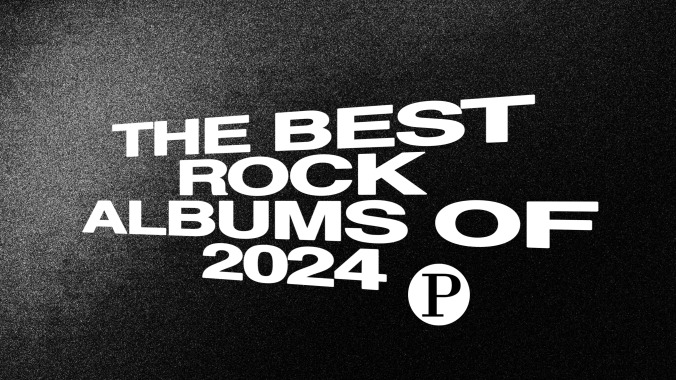
With 2024 firmly in the rearview, we’re finishing up our recap with a couple of genre lists. Last week, we ranked the best rap albums of the year. Today, we’ve assembled a comprehensive list of our favorite rock albums of the year. “Rock” is an arbitrary term nowadays, a placeholder for everything from post-punk to beat music to alternative and heavier country stuff, so there is no concrete throughline with these 40 LPs other than, well, we think they’re rock records to some degree! We’re loose with our own definition, touching as many sub-genres as we can without blurring the line too much. Featuring efforts from MJ Lenderman, the Cure, Fake Fruit, 2nd Grade, Mdou Moctar and more, here are Paste’s picks for the 40 best rock albums of 2024.
40. Clementine Was Right: Tell Yourself You’re Going Home
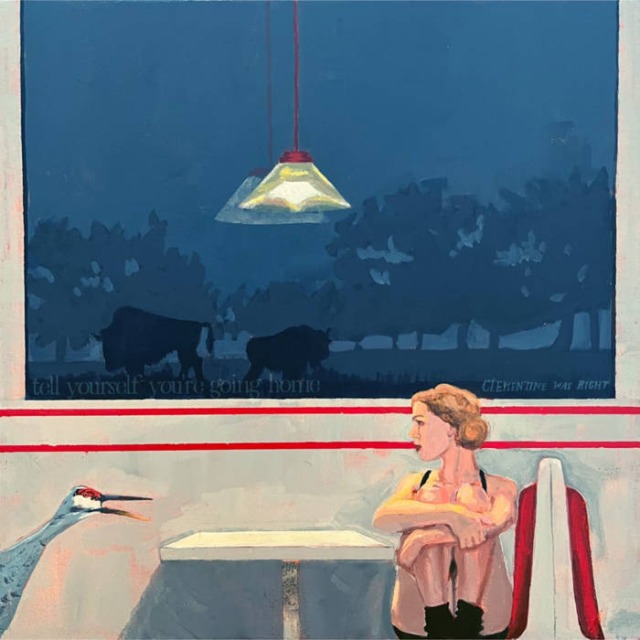 Clementine Was Right’s latest album, Tell Yourself You’re Going Home, is their best, but it’s also a venerable collage of everything great about rock ‘n’ roll. There’s a lot of heavy Americana, some emo undertones, even a glow of indie-folk—sometimes all at once in the same song. 30 musicians are credited with performing on the album, which might seem like a lot if you aren’t familiar with Clementine Was Right’s rotating live cast—and having that kind of ensemble at their disposal helps make the band even more dimensional than Young’s shepherding, impassioned, siren vocal already does. As quickly as “Coca Cola Vigil” will make you weep over folks you’ve never met, “Takes Tall Walks” will have you standing up straight and calling your parents to tell them you love them. That’s the dynamic of Clementine Was Right, as Michael Young and Gion Davis—both literary poets at some time or another in their lives—have a chemistry together on the page that, then, transcends into a full-band lilt of brilliance. Few working bands can claim that kind of magic. —Matt Mitchell [The Blue Turn]
Clementine Was Right’s latest album, Tell Yourself You’re Going Home, is their best, but it’s also a venerable collage of everything great about rock ‘n’ roll. There’s a lot of heavy Americana, some emo undertones, even a glow of indie-folk—sometimes all at once in the same song. 30 musicians are credited with performing on the album, which might seem like a lot if you aren’t familiar with Clementine Was Right’s rotating live cast—and having that kind of ensemble at their disposal helps make the band even more dimensional than Young’s shepherding, impassioned, siren vocal already does. As quickly as “Coca Cola Vigil” will make you weep over folks you’ve never met, “Takes Tall Walks” will have you standing up straight and calling your parents to tell them you love them. That’s the dynamic of Clementine Was Right, as Michael Young and Gion Davis—both literary poets at some time or another in their lives—have a chemistry together on the page that, then, transcends into a full-band lilt of brilliance. Few working bands can claim that kind of magic. —Matt Mitchell [The Blue Turn]
39. Lime Garden: One More Thing
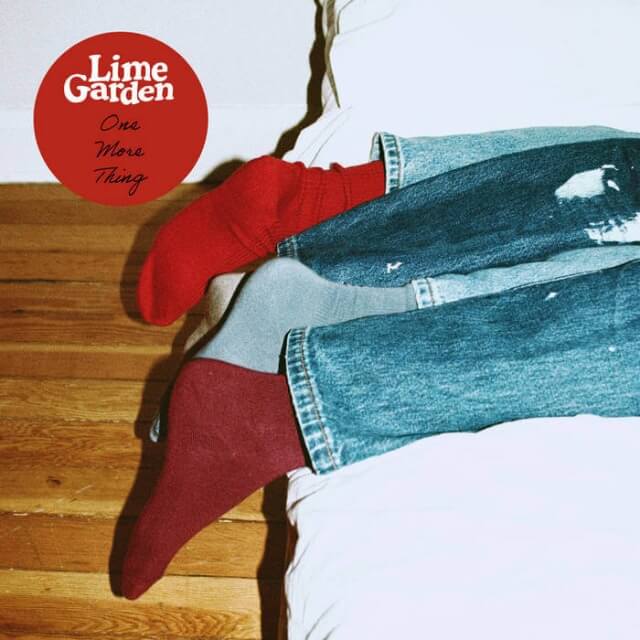 Lime Garden is one of the brightest bands in the UK right now, and One More Thing is a record as brilliant as it is underrated. It’s a quick 30-minute LP packed wall-to-wall with bangers, including the effervescent “I Want to Be You,” the thorny opener “Love Song” and the throbby, glitzy “Mother.” Lime Garden call themselves “wonk pop,” and Chloe Howard, Leila Deeley, Tippi Morgan and Annabel Whittle have got an ace up their sleeve in their unbelievably good chemistry. One More Thing flew under the radar here in the US but took off proudly across the pond. Following tours with IDLES, Yard Act and Sunflower Bean, Lime Garden are proving, one note at a time, that they are a headlining act of the future. These 10 songs are perfect, and One More Thing is the kind of debut record you’ll gladly wait seven years for. —Matt Mitchell [So Young]
Lime Garden is one of the brightest bands in the UK right now, and One More Thing is a record as brilliant as it is underrated. It’s a quick 30-minute LP packed wall-to-wall with bangers, including the effervescent “I Want to Be You,” the thorny opener “Love Song” and the throbby, glitzy “Mother.” Lime Garden call themselves “wonk pop,” and Chloe Howard, Leila Deeley, Tippi Morgan and Annabel Whittle have got an ace up their sleeve in their unbelievably good chemistry. One More Thing flew under the radar here in the US but took off proudly across the pond. Following tours with IDLES, Yard Act and Sunflower Bean, Lime Garden are proving, one note at a time, that they are a headlining act of the future. These 10 songs are perfect, and One More Thing is the kind of debut record you’ll gladly wait seven years for. —Matt Mitchell [So Young]
38. Dummy: Free Energy
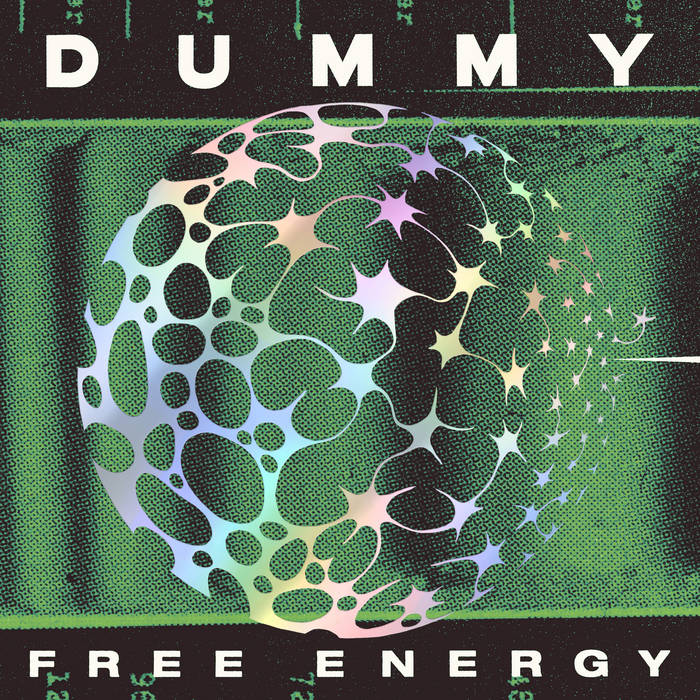 No two consecutive tracks on Free Energy wade in the same waters. We move from the trance-like rhythms and skittering drum pattern of opener “Intro-UB” to the wistful krautrock of “Soonish…,” the plaintive sax riff on “Opaline Bubbletear” turns into the catchy dream pop of “Blue Dada” before bubbling up with warped guitars that follow lead single “Nullspace” on its journey into the almost-alien and otherworldly. Even singular tracks themselves can be further divided into two parts, with many of them featuring beat switches or changes in tempo that create an album with a fractal nature, parts expanding outwards and colliding into each other with deftness and grace. Emma Maatman and Nathan O’Dell’s layered vocals seem to float over the mix, and the resulting effect is that of a body, weightless but still moving with force and energy. Bands have been fascinated with space since the very beginnings of modern popular music (The Tornados’ “Telstar” even hit #1 in 1962), but Free Energy wants to take you on a journey through the infinitesimal. There are no hard surfaces in Dummy’s songs on this album. Instead, Free Energy is musically lithe, constantly shifting the way it interacts with the listener. As the guitars pound harder and an organ freakout comes in as “Blue Dada” approaches its close, it’s difficult to remember this is the same song you were listening to two minutes ago. That’s the trick to Free Energy: a feeling that the tracks, and the atoms and energy within them, are always just on the verge of spinning out of control. —Dylan Fugel [Trouble in Mind]
No two consecutive tracks on Free Energy wade in the same waters. We move from the trance-like rhythms and skittering drum pattern of opener “Intro-UB” to the wistful krautrock of “Soonish…,” the plaintive sax riff on “Opaline Bubbletear” turns into the catchy dream pop of “Blue Dada” before bubbling up with warped guitars that follow lead single “Nullspace” on its journey into the almost-alien and otherworldly. Even singular tracks themselves can be further divided into two parts, with many of them featuring beat switches or changes in tempo that create an album with a fractal nature, parts expanding outwards and colliding into each other with deftness and grace. Emma Maatman and Nathan O’Dell’s layered vocals seem to float over the mix, and the resulting effect is that of a body, weightless but still moving with force and energy. Bands have been fascinated with space since the very beginnings of modern popular music (The Tornados’ “Telstar” even hit #1 in 1962), but Free Energy wants to take you on a journey through the infinitesimal. There are no hard surfaces in Dummy’s songs on this album. Instead, Free Energy is musically lithe, constantly shifting the way it interacts with the listener. As the guitars pound harder and an organ freakout comes in as “Blue Dada” approaches its close, it’s difficult to remember this is the same song you were listening to two minutes ago. That’s the trick to Free Energy: a feeling that the tracks, and the atoms and energy within them, are always just on the verge of spinning out of control. —Dylan Fugel [Trouble in Mind]
37. NewDad: Madra
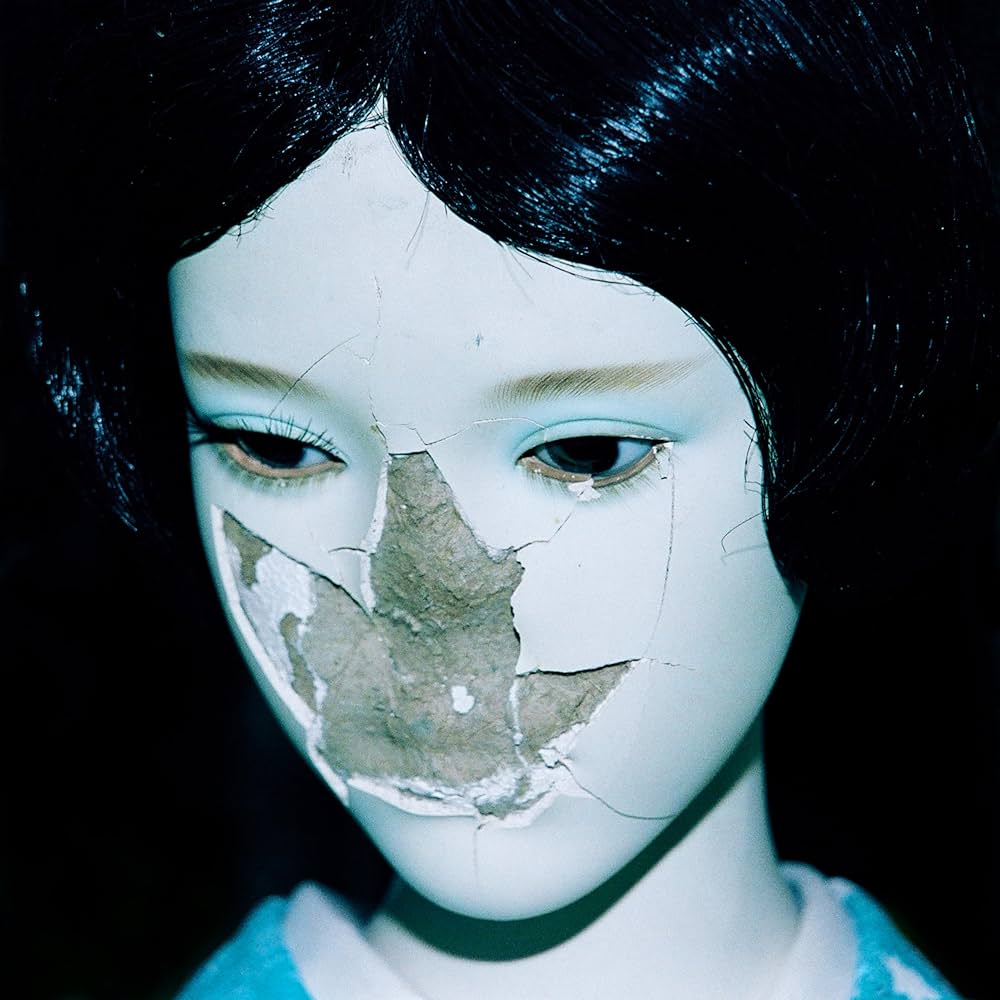 If Twilight came out in 2024, a song from NewDad’s debut LP Madra (Irish for “dog”) would definitely play during a scene featuring moody teenagers and even moodier vampires. That’s not to say the Galway band’s music is emo like much of the (iconic) Twilight soundtrack—they fit comfortably in shoegaze, dream pop and grunge territory—but more that lead singer Julie Dawson’s plaintive voice and NewDad’s reverb-laden sound are well-suited for overcast Forks skies. Opener “Angel” is a portent of doom, as Dawson sings from the perspective of a guilt-ridden person who feels like a burden to their partner. “Sickly Sweet” delves into the dichotomy of fascination and repulsion with vivid lyrics: “You’re sickly sweet / You’re sweetly sick / A shiny thing, I want to pick.” Nearly every moment on Madra feels like deadly nightshade: beautiful and menacing in equal measure. —Clare Martin [Fair Youth/Atlantic]
If Twilight came out in 2024, a song from NewDad’s debut LP Madra (Irish for “dog”) would definitely play during a scene featuring moody teenagers and even moodier vampires. That’s not to say the Galway band’s music is emo like much of the (iconic) Twilight soundtrack—they fit comfortably in shoegaze, dream pop and grunge territory—but more that lead singer Julie Dawson’s plaintive voice and NewDad’s reverb-laden sound are well-suited for overcast Forks skies. Opener “Angel” is a portent of doom, as Dawson sings from the perspective of a guilt-ridden person who feels like a burden to their partner. “Sickly Sweet” delves into the dichotomy of fascination and repulsion with vivid lyrics: “You’re sickly sweet / You’re sweetly sick / A shiny thing, I want to pick.” Nearly every moment on Madra feels like deadly nightshade: beautiful and menacing in equal measure. —Clare Martin [Fair Youth/Atlantic]
36. Wussy: Cincinnati Ohio
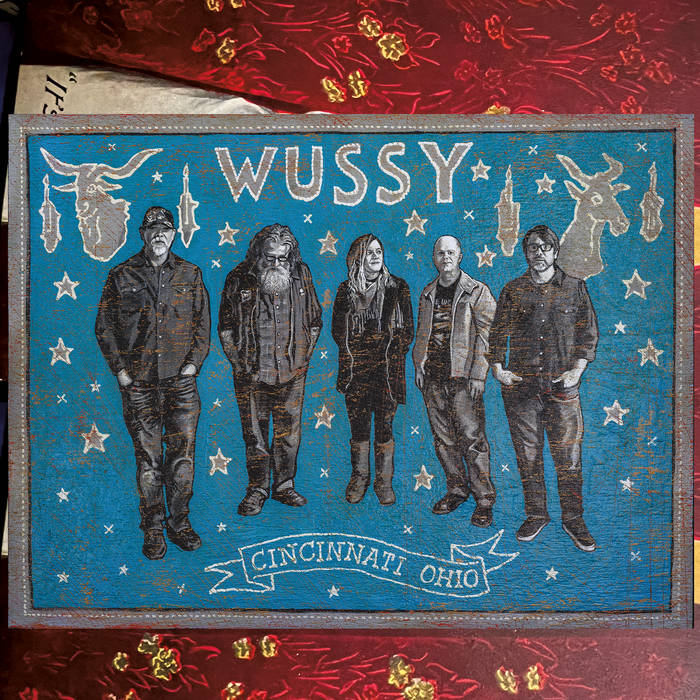 Thanks to Chuck Cleaver and Lisa Walker, Wussy are one of the most exciting and important Ohio bands working right now. Their 2024 LP Cincinnati Ohio is excellent, emphasizing just how good a run the band has been on since their 2005 debut Funeral Dress. Wussy’s guitarist/steel pedaler John Erhardt passed away in 2020, and Cincinnati Ohio is not just their first full-length since, but it’s a stirring tribute to their fallen bandmate. “The Ghosts Keep Me Alive” and “Disaster About You” are big-time highlights, both of which take the record’s grief, rough it up and turn them into gestures of post-tragedy empowerment. Cincinnati Ohio is a painful album, but one worth checking into. —Matt Mitchell [Self-Released]
Thanks to Chuck Cleaver and Lisa Walker, Wussy are one of the most exciting and important Ohio bands working right now. Their 2024 LP Cincinnati Ohio is excellent, emphasizing just how good a run the band has been on since their 2005 debut Funeral Dress. Wussy’s guitarist/steel pedaler John Erhardt passed away in 2020, and Cincinnati Ohio is not just their first full-length since, but it’s a stirring tribute to their fallen bandmate. “The Ghosts Keep Me Alive” and “Disaster About You” are big-time highlights, both of which take the record’s grief, rough it up and turn them into gestures of post-tragedy empowerment. Cincinnati Ohio is a painful album, but one worth checking into. —Matt Mitchell [Self-Released]
35. Ben Seretan: Allora
 Allora begins in a place of rapture, as the eight-minute “New Air” blisters through the frequencies like a Sonic Youth breakdown, before giving way to flutters of chord surfing. A three-minute introduction of noise, fragmented soloing and anticipation becomes a sensory overload, until Seretan plugs an onslaught of imagery into a heat-seeking missile of rock ‘n’ roll. “Cough drops and bumblebees in syrup / Bare feet resting on the window / When we drove to San Diego / We swam in every flooded valley,” he sings. It’s poetry wedged between hard-nosed, chameleonic guitar postures. Seretan is the kind of musician who isn’t afraid to keep you on your toes. The music he makes flutters between color—shape-shifting between indie rock, experimental and gauzy, metallic, spell-binding chatter. Allora is a special body of work for how it presents grief through intervals of intensity and delicacy. The penultimate song “Free” is eight minutes long and holds less than 30 words, but that brevity becomes a token of sentimentality taking shape as a silent smile. “We were laughing without making any sound,” Seretan sings. “I sat on the uneven ground.” A chaotic segue of piercing, squeaking horns sound like nails on a chalkboard behind him, as he yelps “Were it that I was free? Ah, free.” And then, without flinching, the arrangement returns to normal—cascading into a face-melting guitar solo finale that ruptures like a bruise flanking softness. —Matt Mitchell [Tiny Engines]
Allora begins in a place of rapture, as the eight-minute “New Air” blisters through the frequencies like a Sonic Youth breakdown, before giving way to flutters of chord surfing. A three-minute introduction of noise, fragmented soloing and anticipation becomes a sensory overload, until Seretan plugs an onslaught of imagery into a heat-seeking missile of rock ‘n’ roll. “Cough drops and bumblebees in syrup / Bare feet resting on the window / When we drove to San Diego / We swam in every flooded valley,” he sings. It’s poetry wedged between hard-nosed, chameleonic guitar postures. Seretan is the kind of musician who isn’t afraid to keep you on your toes. The music he makes flutters between color—shape-shifting between indie rock, experimental and gauzy, metallic, spell-binding chatter. Allora is a special body of work for how it presents grief through intervals of intensity and delicacy. The penultimate song “Free” is eight minutes long and holds less than 30 words, but that brevity becomes a token of sentimentality taking shape as a silent smile. “We were laughing without making any sound,” Seretan sings. “I sat on the uneven ground.” A chaotic segue of piercing, squeaking horns sound like nails on a chalkboard behind him, as he yelps “Were it that I was free? Ah, free.” And then, without flinching, the arrangement returns to normal—cascading into a face-melting guitar solo finale that ruptures like a bruise flanking softness. —Matt Mitchell [Tiny Engines]
34. Wand: Vertigo
 The question of where Wand ends and Cory Hanson begins (and vice-versa) is more complex than you might initially believe. Hanson’s work with his longtime band evokes an era of rock ‘n’ roll that rarely gets its due in the 21st century. On Vertigo—their first album together in five years—the Los Angeles group wades through riffing, slow-burn swells of warm emotion and sprawling runtimes. Songs like “Hangman” and “JJ” grow into delicate yet grandiose arrangements of piano, orchestral strings and subtle percussion. Hanson’s emotive vocals softly ease their way through the track, nestling into a melancholic pace that beautifully fuses with the instrumentation. “Help Desk” especially wanders at its own pace, creating a spacious and swirling atmosphere of sound. Not quite the ZZ Top-meets-Guitar Hero attitude of Hanson’s 2023 solo album Western Cum, Vertigo boasts rich, expansive songs draped in a tangible pensiveness that you’d be hard-pressed to find anywhere but here. Even when Wand settles into their riff-heavy roots on a song like “Smile,” it sounds far more ornate than it should. That’s where the magic is, in how Wand have never considered a life as a one-trick pony. If you want to hear an album that is rid of angles and takes a new direction at every turn, Vertigo could be the eight-song outing that changes your life. —Grace Ann Nantanawan [Drag City]
The question of where Wand ends and Cory Hanson begins (and vice-versa) is more complex than you might initially believe. Hanson’s work with his longtime band evokes an era of rock ‘n’ roll that rarely gets its due in the 21st century. On Vertigo—their first album together in five years—the Los Angeles group wades through riffing, slow-burn swells of warm emotion and sprawling runtimes. Songs like “Hangman” and “JJ” grow into delicate yet grandiose arrangements of piano, orchestral strings and subtle percussion. Hanson’s emotive vocals softly ease their way through the track, nestling into a melancholic pace that beautifully fuses with the instrumentation. “Help Desk” especially wanders at its own pace, creating a spacious and swirling atmosphere of sound. Not quite the ZZ Top-meets-Guitar Hero attitude of Hanson’s 2023 solo album Western Cum, Vertigo boasts rich, expansive songs draped in a tangible pensiveness that you’d be hard-pressed to find anywhere but here. Even when Wand settles into their riff-heavy roots on a song like “Smile,” it sounds far more ornate than it should. That’s where the magic is, in how Wand have never considered a life as a one-trick pony. If you want to hear an album that is rid of angles and takes a new direction at every turn, Vertigo could be the eight-song outing that changes your life. —Grace Ann Nantanawan [Drag City]
33. Fake Fruit: Mucho Mistrust
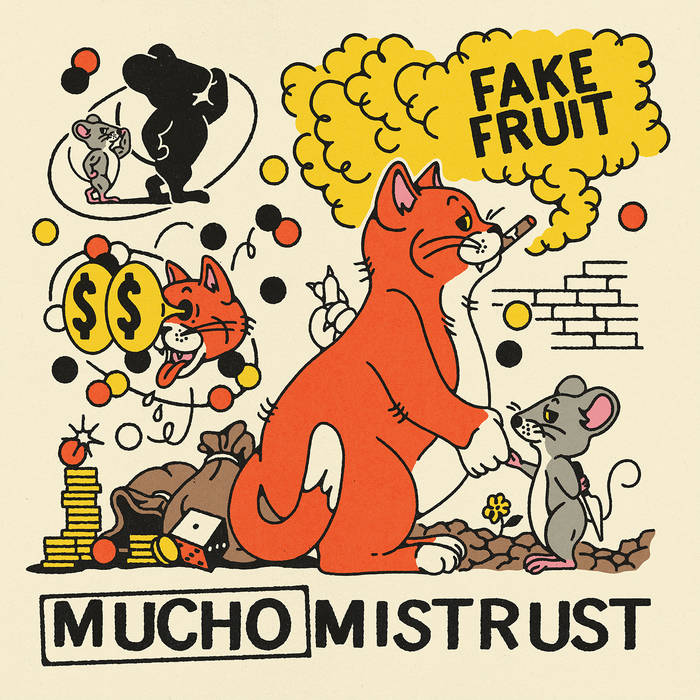 Mucho Mistrust is a frenzy of helter-skelter rhythms, jangling melodies and an air of knowing introspection. Between the artful quips and self-deprecation are healthy suspicions of global catastrophe and capitalistic terror, perfecting a balance of anxiety that hit home for the trio. Hannah “Ham” D’Amato and her bandmates struggle to stay afloat while following their passions as musicians, with all three members trying to hold down jobs in-between tours. Mucho Mistrust is all about taking the absurdity of commercialism and laughing in its face as a way to cope with the system we are all held captive in. Fake Fruit confront existentialism with style and sharp teeth, and that is what makes them such a kinetic band. After spending so much time strengthening her craft and perfecting Fake Fruit’s sound, D’Amato has gained as much confidence in her music as she has in herself. She wishes she could tell her younger self to stop listening to insecure boyfriends who held her back for so long. D’Amato says it best in “Más O Menos” when she shouts, “After I lost all my sense of self / I let myself get absorbed into you.” —Olivia Abercrombie [Carpark]
Mucho Mistrust is a frenzy of helter-skelter rhythms, jangling melodies and an air of knowing introspection. Between the artful quips and self-deprecation are healthy suspicions of global catastrophe and capitalistic terror, perfecting a balance of anxiety that hit home for the trio. Hannah “Ham” D’Amato and her bandmates struggle to stay afloat while following their passions as musicians, with all three members trying to hold down jobs in-between tours. Mucho Mistrust is all about taking the absurdity of commercialism and laughing in its face as a way to cope with the system we are all held captive in. Fake Fruit confront existentialism with style and sharp teeth, and that is what makes them such a kinetic band. After spending so much time strengthening her craft and perfecting Fake Fruit’s sound, D’Amato has gained as much confidence in her music as she has in herself. She wishes she could tell her younger self to stop listening to insecure boyfriends who held her back for so long. D’Amato says it best in “Más O Menos” when she shouts, “After I lost all my sense of self / I let myself get absorbed into you.” —Olivia Abercrombie [Carpark]
Read: “Fake Fruit Have a Puzzle to Solve”
32. Combat: Stay Golden
 If you want a photo op with emo’s most iconic landmark, you’ll have to make a pilgrimage to the American Football House in Urbana, Illinois, but you’ll have more fun hitting up hotspots in the Mid-Atlantic. Or you can just watch the video for “Stay Golden,” the breathless title track from Combat’s latest LP, in which a gorilla chases the Baltimore band past the exact spot on the Ocean City boardwalk where the cover photo for The Promise Ring’s Nothing Feels Good was taken. Like other emo classics before it, Stay Golden deals with the tireless 20-something angst that follows you even on a day at the beach, presented in shoutable choruses, harmonized guitar leads, and solid gold pop-punk hooks so shiny you can hear them sparkle in the sun (wait, sorry, is that a glockenspiel?). Produced by Ryland Heagy of Origami Angel, it finds Combat stepping into emo’s storied lineage while also dropping their own pin on the map. Future album cover walking tours won’t be complete without a stop at the Art Deco facade of the Senator Theater in Baltimore. I’m going to start calling it the Stay Golden Theater. —Taylor Ruckle [Counter Intuitive]
If you want a photo op with emo’s most iconic landmark, you’ll have to make a pilgrimage to the American Football House in Urbana, Illinois, but you’ll have more fun hitting up hotspots in the Mid-Atlantic. Or you can just watch the video for “Stay Golden,” the breathless title track from Combat’s latest LP, in which a gorilla chases the Baltimore band past the exact spot on the Ocean City boardwalk where the cover photo for The Promise Ring’s Nothing Feels Good was taken. Like other emo classics before it, Stay Golden deals with the tireless 20-something angst that follows you even on a day at the beach, presented in shoutable choruses, harmonized guitar leads, and solid gold pop-punk hooks so shiny you can hear them sparkle in the sun (wait, sorry, is that a glockenspiel?). Produced by Ryland Heagy of Origami Angel, it finds Combat stepping into emo’s storied lineage while also dropping their own pin on the map. Future album cover walking tours won’t be complete without a stop at the Art Deco facade of the Senator Theater in Baltimore. I’m going to start calling it the Stay Golden Theater. —Taylor Ruckle [Counter Intuitive]
31. David Nance & Mowed Sound: David Nance & Mowed Sound
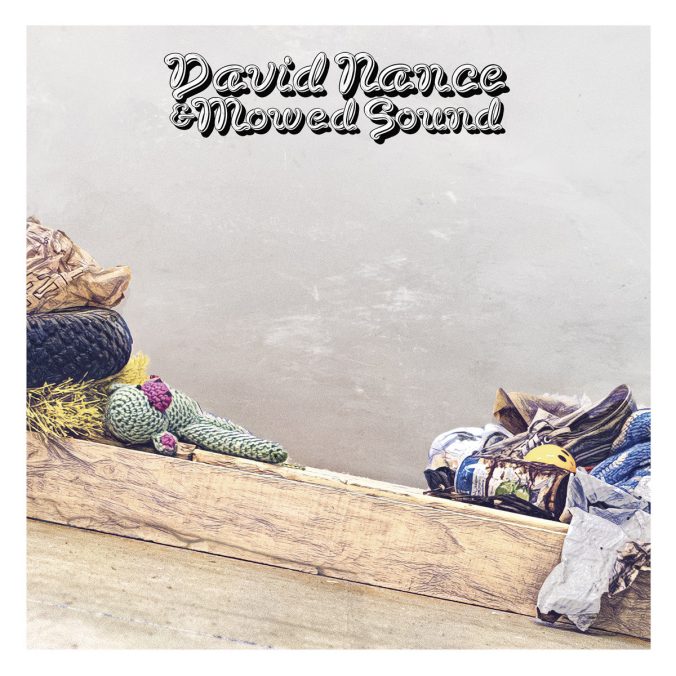 David Nance, a Nebraska singer-songwriter as prolific as he is brilliant, has, miraculously, crafted his finest work to date on his Third Man Records debut. David Nance & Mowed Sound is an ensemble affair, calling on folks like James Schroeder, Dereck Higgins and Kevin Donahue to fill out the sound, which arrives like a mirage of country tunes built in an off-the-grid Midwest garage. The raucous, loose “Mock the Hours” will go down, when 2024 rings out, as one of the very best album openers of the year, while “Tumbleweed” slows it down and flutters like a Wild West standoff. “Side Eyed Sam” wanders while “Tergiversation” makes percussion the headlining act. But it’s Nance’s vocals that carry the album near and far, as he cuts through noise and mangled riffs to craft a sound that is not so much retro as it is sublime and fine-tuned. David Nance & Mowed Sound is a measure of hard-earned and well-worn chemistry, and Nance makes good on his reputation as the best hit-maker you can’t put a finger on. —Matt Mitchell [Third Man]
David Nance, a Nebraska singer-songwriter as prolific as he is brilliant, has, miraculously, crafted his finest work to date on his Third Man Records debut. David Nance & Mowed Sound is an ensemble affair, calling on folks like James Schroeder, Dereck Higgins and Kevin Donahue to fill out the sound, which arrives like a mirage of country tunes built in an off-the-grid Midwest garage. The raucous, loose “Mock the Hours” will go down, when 2024 rings out, as one of the very best album openers of the year, while “Tumbleweed” slows it down and flutters like a Wild West standoff. “Side Eyed Sam” wanders while “Tergiversation” makes percussion the headlining act. But it’s Nance’s vocals that carry the album near and far, as he cuts through noise and mangled riffs to craft a sound that is not so much retro as it is sublime and fine-tuned. David Nance & Mowed Sound is a measure of hard-earned and well-worn chemistry, and Nance makes good on his reputation as the best hit-maker you can’t put a finger on. —Matt Mitchell [Third Man]
30. Cloud Nothings: Final Summer
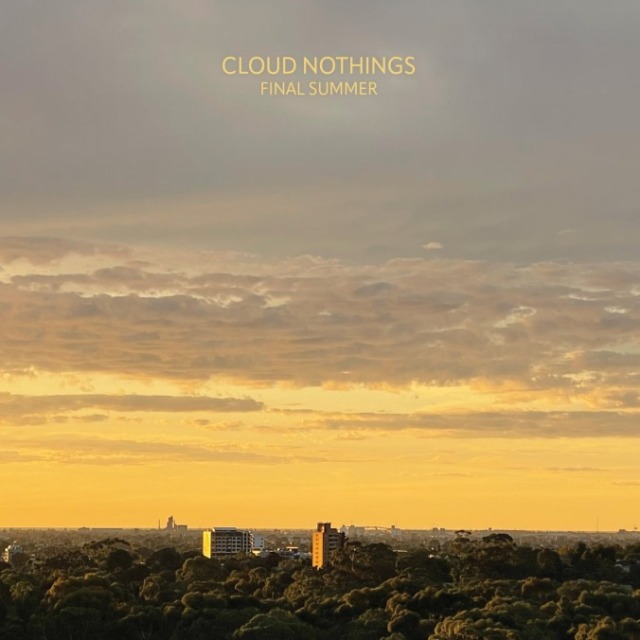 More than anything, Cloud Nothings’ eighth studio album is a reassurance that Dylan Baldi will always discover new ways to turn existential angst into meaty, catchy, sometimes-heavy rock songs. As Cloud Nothings turn 15 years old, Baldi’s repetitive mantras are simpler than ever, imbuing uneasiness into only a handful of words. Recorded by Philadelphia mainstay Jeff Zeigler (The War on Drugs, Torres) and mixed by Sarah Tudzin of Illuminati Hotties, Final Summer is a dependable, giant slab of rock music in its purest form. Occasionally Final Summer will hammer a hook into oblivion, finding new meaning by letting a line repeat and repeat. “Daggers of Light” concludes with Baldi peering through a looking glass, chanting “I was on the edge of another life”—as if his reiterations would somehow transport him there. The early single “I’d Get Along” contains a total of nine words, creating an chaotic adrenaline rush when Baldi finally belts the title. According to Baldi, the song stems from a pandemic-era obsession with doom metal, which explains its nasty, firm guitar tones. Baldi has always been effective at conjuring a stark sense of feeling, even if the specifics aren’t usually in focus. On “The Golden Halo,” Baldi holds out the words “gold today” as if he was avoiding further conversation, countering the song’s aggressively sunny, jubilant guitar melody that could be at home on 2020’s The Black Hole Understands. —Ethan Beck [Pure Noise]
More than anything, Cloud Nothings’ eighth studio album is a reassurance that Dylan Baldi will always discover new ways to turn existential angst into meaty, catchy, sometimes-heavy rock songs. As Cloud Nothings turn 15 years old, Baldi’s repetitive mantras are simpler than ever, imbuing uneasiness into only a handful of words. Recorded by Philadelphia mainstay Jeff Zeigler (The War on Drugs, Torres) and mixed by Sarah Tudzin of Illuminati Hotties, Final Summer is a dependable, giant slab of rock music in its purest form. Occasionally Final Summer will hammer a hook into oblivion, finding new meaning by letting a line repeat and repeat. “Daggers of Light” concludes with Baldi peering through a looking glass, chanting “I was on the edge of another life”—as if his reiterations would somehow transport him there. The early single “I’d Get Along” contains a total of nine words, creating an chaotic adrenaline rush when Baldi finally belts the title. According to Baldi, the song stems from a pandemic-era obsession with doom metal, which explains its nasty, firm guitar tones. Baldi has always been effective at conjuring a stark sense of feeling, even if the specifics aren’t usually in focus. On “The Golden Halo,” Baldi holds out the words “gold today” as if he was avoiding further conversation, countering the song’s aggressively sunny, jubilant guitar melody that could be at home on 2020’s The Black Hole Understands. —Ethan Beck [Pure Noise]
29. Amen Dunes: Death Jokes
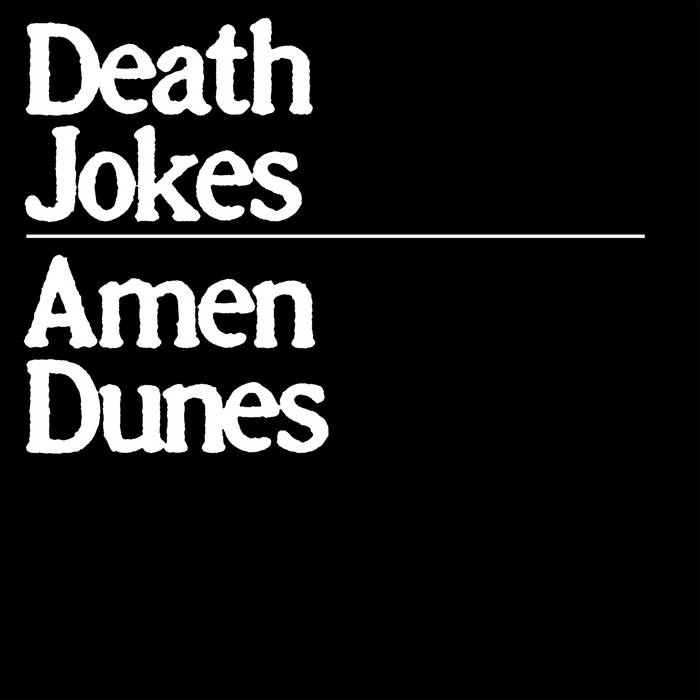 It’d been six years since Amen Dunes—the project of Damon McMahon—last put out an album. In 2018, he unveiled the brilliant Freedom and, this year he gave us Death Jokes. “Purple Land” sees him converging New Wave with alt-folk in a gloss that builds up slowly but never fully explodes like you expect it to—save for a sublime uptick in percussion. “Boys” again revels in the alt-rock that has defined much of Amen Dunes’ lifespan, but the brilliance is in the lyrics across the album—as McMahon tangles himself up in webs of what-ifs, quick-wit and conversational wanderings. But McMahon would never settle for just that, throwing in some vocal distortions and electronic underscores that heightens every inch of Death Jokes. He leaves ample space for listeners to decode meanings from each song, all while performing a bed of sonics that are non-negotiable in their vibrancy. Death Jokes was an exciting return for Amen Dunes. I’m happy McMahon came back and gave us 14 songs to get stoked on before calling the project quits. —Matt Mitchell [Sub Pop]
It’d been six years since Amen Dunes—the project of Damon McMahon—last put out an album. In 2018, he unveiled the brilliant Freedom and, this year he gave us Death Jokes. “Purple Land” sees him converging New Wave with alt-folk in a gloss that builds up slowly but never fully explodes like you expect it to—save for a sublime uptick in percussion. “Boys” again revels in the alt-rock that has defined much of Amen Dunes’ lifespan, but the brilliance is in the lyrics across the album—as McMahon tangles himself up in webs of what-ifs, quick-wit and conversational wanderings. But McMahon would never settle for just that, throwing in some vocal distortions and electronic underscores that heightens every inch of Death Jokes. He leaves ample space for listeners to decode meanings from each song, all while performing a bed of sonics that are non-negotiable in their vibrancy. Death Jokes was an exciting return for Amen Dunes. I’m happy McMahon came back and gave us 14 songs to get stoked on before calling the project quits. —Matt Mitchell [Sub Pop]
28. Silverbacks: Easy Being a Winner
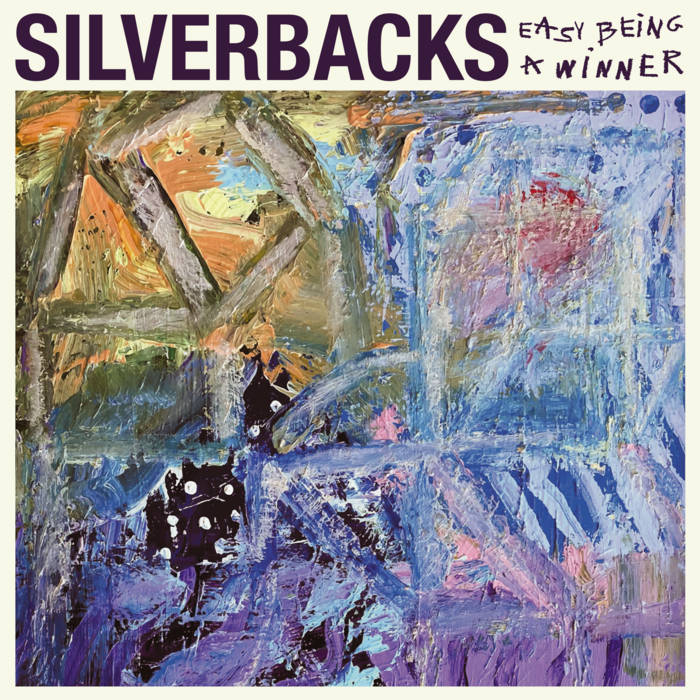 If there’s one decade that defines the sound of Easy Being a Winner, it’s the 1970s. “We realized it was probably the closest thing we were going to make to a classic ‘70s rock album, with the big guitars and the big drum sounds,” Gary Wickham explains. Kilian O’Kelly wrote “Look At All You’ve Done,” and the track boasts twangy, dad rock guitar, layered vocals, and riff after riff, all coming together to give the song a sunny, Steely Dan halo. Gary considers “Giving Away an Inch Of” their Fleetwood Mac moment, and I can’t help but agree listening to the tight, silvery riffs and Emma’s crystalline vocals as she silkily sings, “We’re in the red hot pokers now”—a reference to Kilian and Emma’s favorite plant in their garden. Daniel (O’Kelly) gets to do his best Elvis impersonation on the chorus (“Red! Hot! Pokers!”)—and it’s not the first time he’s done so on a Silverbacks track, as he had a moment channeling The King at the end of Archive Material opener “Economo.” My husband once described Silverbacks as sounding like Pavement if they’d never smoked weed, and he has a point. As layered and surprising as their songs are, Silverbacks don’t meander much, keeping their noodly riffs and bursts of distortion under control—but by no means stifling their playfulness. And besides the sound, Silverbacks are just a bit too intense for those purely slacker rock vibes. —Clare Martin [Central Tones]
If there’s one decade that defines the sound of Easy Being a Winner, it’s the 1970s. “We realized it was probably the closest thing we were going to make to a classic ‘70s rock album, with the big guitars and the big drum sounds,” Gary Wickham explains. Kilian O’Kelly wrote “Look At All You’ve Done,” and the track boasts twangy, dad rock guitar, layered vocals, and riff after riff, all coming together to give the song a sunny, Steely Dan halo. Gary considers “Giving Away an Inch Of” their Fleetwood Mac moment, and I can’t help but agree listening to the tight, silvery riffs and Emma’s crystalline vocals as she silkily sings, “We’re in the red hot pokers now”—a reference to Kilian and Emma’s favorite plant in their garden. Daniel (O’Kelly) gets to do his best Elvis impersonation on the chorus (“Red! Hot! Pokers!”)—and it’s not the first time he’s done so on a Silverbacks track, as he had a moment channeling The King at the end of Archive Material opener “Economo.” My husband once described Silverbacks as sounding like Pavement if they’d never smoked weed, and he has a point. As layered and surprising as their songs are, Silverbacks don’t meander much, keeping their noodly riffs and bursts of distortion under control—but by no means stifling their playfulness. And besides the sound, Silverbacks are just a bit too intense for those purely slacker rock vibes. —Clare Martin [Central Tones]
Read: “Silverbacks Are Ireland’s Immutable Chameleons”
27. Porridge Radio: Clouds in the Sky They Will Always Be
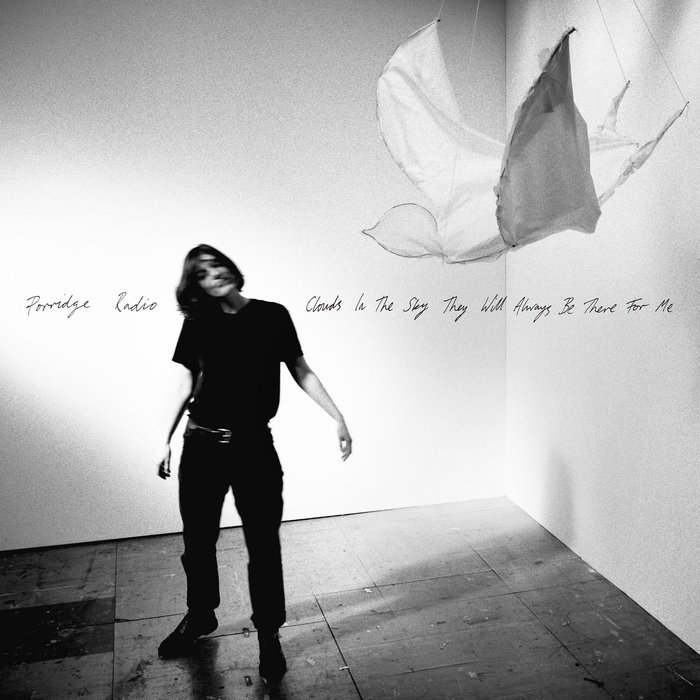 Earlier this summer, Porridge Radio teamed up with IAN SWEET to drop my favorite song of 2024 so far, “Everyone’s a Superstar.” Now, the former have released their next record, Clouds in the Sky They Will Always Be There For Me. The Best of What’s Next alums are firing on all cylinders on“Sick of the Blues,” a reclamation of joy and seizing of agency and control. Bandleader Dana Margolin sounds like she’s going through a hair-raising rapture on the track, quaking and aching through strained vocals, tear-drop synths and a wounded guitar-and-drum combo. “I’m sick of the blues, I’m in love with my life again,” Margolin cries out, as chaotic, incongruous instrumentation flutters into a horn outro that pillows your soul like a lullaby after waking up in a cold sweat. Few modern bands excite me like Porridge Radio, who make post-punk look effortless yet breathtaking. “God of Everything Else” is a perfect, rupturing blow-out of anger and heartbreak, as violins and riffs thrash and split in two, as Margolin sings, “It was a sick, sick sickness loving you.” “I wake up choking on dreams of you, I wake up crying from loving you,” she declares. “God of Everything Else,” tonally, should be a road long and often traveled, but Porridge Radio destroy all preconceptions and burst into and out of themselves, cycling through a shipwreck of mood. “I’m the god of everything else, you’re the god of losing me,” Margolin reckons, and it leaves a bruise. —Matt Mitchell [Secretly Canadian]
Earlier this summer, Porridge Radio teamed up with IAN SWEET to drop my favorite song of 2024 so far, “Everyone’s a Superstar.” Now, the former have released their next record, Clouds in the Sky They Will Always Be There For Me. The Best of What’s Next alums are firing on all cylinders on“Sick of the Blues,” a reclamation of joy and seizing of agency and control. Bandleader Dana Margolin sounds like she’s going through a hair-raising rapture on the track, quaking and aching through strained vocals, tear-drop synths and a wounded guitar-and-drum combo. “I’m sick of the blues, I’m in love with my life again,” Margolin cries out, as chaotic, incongruous instrumentation flutters into a horn outro that pillows your soul like a lullaby after waking up in a cold sweat. Few modern bands excite me like Porridge Radio, who make post-punk look effortless yet breathtaking. “God of Everything Else” is a perfect, rupturing blow-out of anger and heartbreak, as violins and riffs thrash and split in two, as Margolin sings, “It was a sick, sick sickness loving you.” “I wake up choking on dreams of you, I wake up crying from loving you,” she declares. “God of Everything Else,” tonally, should be a road long and often traveled, but Porridge Radio destroy all preconceptions and burst into and out of themselves, cycling through a shipwreck of mood. “I’m the god of everything else, you’re the god of losing me,” Margolin reckons, and it leaves a bruise. —Matt Mitchell [Secretly Canadian]
26. The Hard Quartet: The Hard Quartet
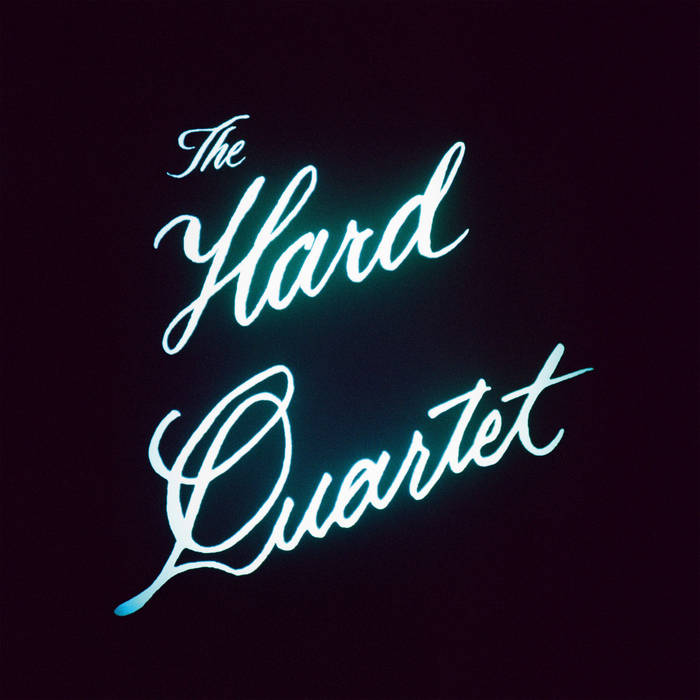 Indie rock supergroup is an oxymoron. Nobody gets into indie rock to get rich or famous, and even the biggest name in the Hard Quartet, Stephen Malkmus, couldn’t crack a commercial radio playlist. Still, for the people who know, the Hard Quartet is a genuine all-star lineup. Beyond the Pavement frontman, you’ve got Matt Sweeney, who was in Chavez and Skunk and Zwan and played with everybody from Bonnie “Prince” Billy and Iggy Pop to the Chicks and Neil Diamond; guitar genius Emmett Kelly, who has played alongside artists like Ty Segall, Angel Olsen, Will Oldham, and Beth Orton; and Jim White, the Dirty Three drummer who has also backed up Orton, PJ Harvey, Bill Callahan, and countless more. Their first album together, on which all four share singing and songwriting duties, has the warm vibes of a loose hangout album but with ace playing throughout. Not to view it exclusively through a Malkmus lens, but if you missed the off-the-cuff charm of Pavement’s first six years, but appreciated the tighter, more focused musicianship of Malkmus’s solo work, you’re gonna dig The Hard Quartet, which hits the sweet spot right between the two. —Garrett Martin [Matador]
Indie rock supergroup is an oxymoron. Nobody gets into indie rock to get rich or famous, and even the biggest name in the Hard Quartet, Stephen Malkmus, couldn’t crack a commercial radio playlist. Still, for the people who know, the Hard Quartet is a genuine all-star lineup. Beyond the Pavement frontman, you’ve got Matt Sweeney, who was in Chavez and Skunk and Zwan and played with everybody from Bonnie “Prince” Billy and Iggy Pop to the Chicks and Neil Diamond; guitar genius Emmett Kelly, who has played alongside artists like Ty Segall, Angel Olsen, Will Oldham, and Beth Orton; and Jim White, the Dirty Three drummer who has also backed up Orton, PJ Harvey, Bill Callahan, and countless more. Their first album together, on which all four share singing and songwriting duties, has the warm vibes of a loose hangout album but with ace playing throughout. Not to view it exclusively through a Malkmus lens, but if you missed the off-the-cuff charm of Pavement’s first six years, but appreciated the tighter, more focused musicianship of Malkmus’s solo work, you’re gonna dig The Hard Quartet, which hits the sweet spot right between the two. —Garrett Martin [Matador]
25. Being Dead: EELS
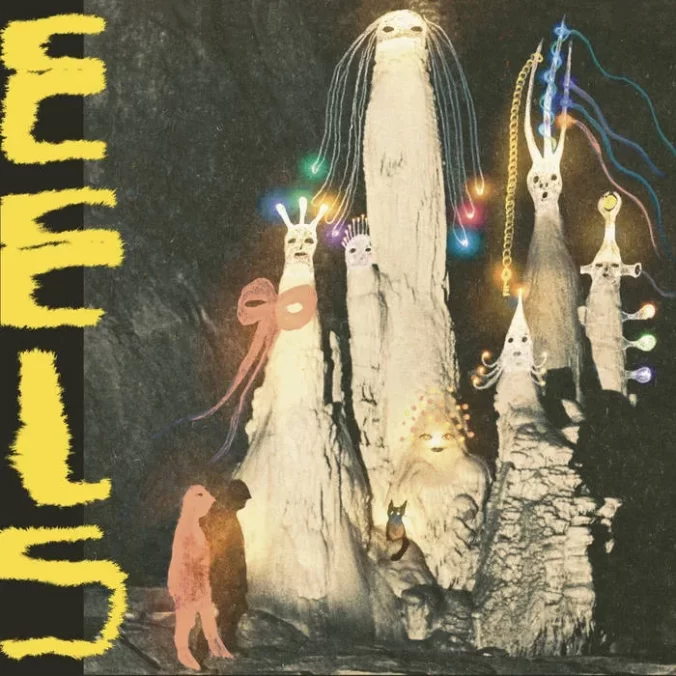 There’s a fine line between irreverent and flippant, of course, and Being Dead skillfully walks that line on EELS, a 16-track collection of sharp zig-zags and even sharper hooks. Opening track “Godzilla Rises,” for example, has it all: electric guitar chug, male and female voices, unexpected rhythmic shifts, irresistible melodies and a sense of resonance that feels like you’re practically in a bathtub with the band. In just under three minutes, Being Dead evoke immersive pop heroes like Neutral Milk Hotel, Animal Collective, That Dog. and the Beach Boys—a touchstone not only for the band’s surf-y foundations, but also their variegated vocal harmonies. Actually, the first third of EELS is a bit of a curveball in its straightforwardness, with one off-kilter pop-rock jam after another: “Blanket of My Bone” sounds like a raucous riot grrrl anthem and a spectral Cindy Lee song woven together. “Problems” reimagines the Velvet Underground as kaleidoscopic hippie music. The punky “Firefighters” juxtaposes Falcon Bitch and Shmoofy’s searing harmonies with some of the best fuzz-guitar tone you’ll hear this year. And “Van Goes” fits call-and-response yelps and a motorik beat into an anti-work tune about feeling fed up with modern life under the weight of capitalism: “Life’s a process but it can happen to you, too,” Falcon Bitch sings. “If you let ‘em get the best of you.” —Ben Salmon [Bayonet]
There’s a fine line between irreverent and flippant, of course, and Being Dead skillfully walks that line on EELS, a 16-track collection of sharp zig-zags and even sharper hooks. Opening track “Godzilla Rises,” for example, has it all: electric guitar chug, male and female voices, unexpected rhythmic shifts, irresistible melodies and a sense of resonance that feels like you’re practically in a bathtub with the band. In just under three minutes, Being Dead evoke immersive pop heroes like Neutral Milk Hotel, Animal Collective, That Dog. and the Beach Boys—a touchstone not only for the band’s surf-y foundations, but also their variegated vocal harmonies. Actually, the first third of EELS is a bit of a curveball in its straightforwardness, with one off-kilter pop-rock jam after another: “Blanket of My Bone” sounds like a raucous riot grrrl anthem and a spectral Cindy Lee song woven together. “Problems” reimagines the Velvet Underground as kaleidoscopic hippie music. The punky “Firefighters” juxtaposes Falcon Bitch and Shmoofy’s searing harmonies with some of the best fuzz-guitar tone you’ll hear this year. And “Van Goes” fits call-and-response yelps and a motorik beat into an anti-work tune about feeling fed up with modern life under the weight of capitalism: “Life’s a process but it can happen to you, too,” Falcon Bitch sings. “If you let ‘em get the best of you.” —Ben Salmon [Bayonet]
24. Sinai Vessel: I SING
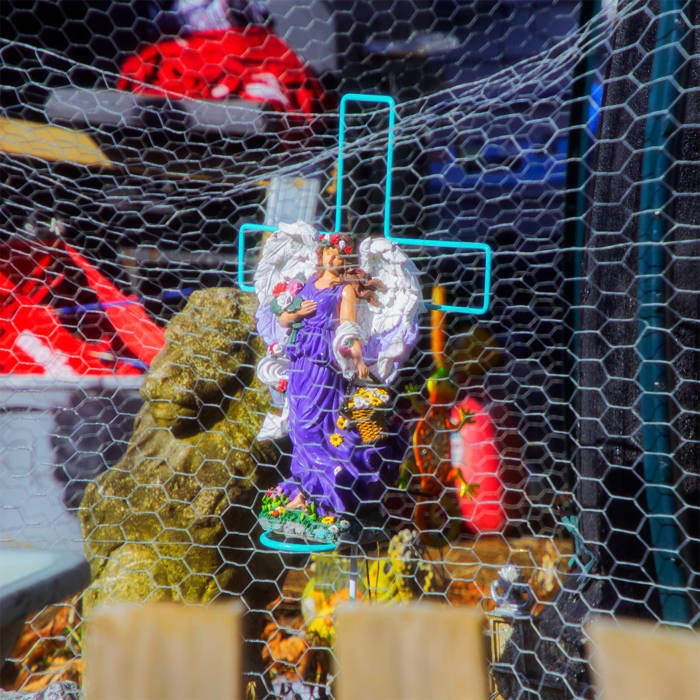 For I SING, Caleb Cordes sounds unburdened by pretense but overburdened by the rest of what it takes to exist. He’s plagued by envy for the born-rich and their brilliant homes on “Laughing” and interpersonal letdowns on “Birthday,” delivered in rhythmically and stylistically conversational English. On “Birthday,” especially, you feel like you’re along for the ride: “Have breakfast out at some cafe / Where the conversation strained / Here and so soon gone away / Not much to say.” Cordes isn’t just a singer; he’s a storyteller, and whether it’s over minimalist bossa nova or pedal-steel inflected capital-C country, the narrative maintains the spotlight. Cordes doesn’t just sing on I SING. He also serves as co-producer alongside Bennett Littlejohn, whose touches on records by Molly Drag, claire rousay and Hovvdy have an unmistakable smoothness that give songwriters room to roam. The guitars on “Country Mile” feel propulsive but not rushed, the drums on “Window Blue” feel punctuated but not sharp, the outro on “Attack” feels huge but not over-the-top. Everyone involved with I SING knows how to suss out the happy medium in every production choice without careening towards what’s generic. Even moves that feel like timeless singer-songwriter folk tricks feel bespoke, indicative of an album carefully balanced between novelty and familiarity. It’s as if I SING has always been a part of Sinai Vessel’s canon and that of indie rock at large. —Devon Chodzin [Keeled Scales]
For I SING, Caleb Cordes sounds unburdened by pretense but overburdened by the rest of what it takes to exist. He’s plagued by envy for the born-rich and their brilliant homes on “Laughing” and interpersonal letdowns on “Birthday,” delivered in rhythmically and stylistically conversational English. On “Birthday,” especially, you feel like you’re along for the ride: “Have breakfast out at some cafe / Where the conversation strained / Here and so soon gone away / Not much to say.” Cordes isn’t just a singer; he’s a storyteller, and whether it’s over minimalist bossa nova or pedal-steel inflected capital-C country, the narrative maintains the spotlight. Cordes doesn’t just sing on I SING. He also serves as co-producer alongside Bennett Littlejohn, whose touches on records by Molly Drag, claire rousay and Hovvdy have an unmistakable smoothness that give songwriters room to roam. The guitars on “Country Mile” feel propulsive but not rushed, the drums on “Window Blue” feel punctuated but not sharp, the outro on “Attack” feels huge but not over-the-top. Everyone involved with I SING knows how to suss out the happy medium in every production choice without careening towards what’s generic. Even moves that feel like timeless singer-songwriter folk tricks feel bespoke, indicative of an album carefully balanced between novelty and familiarity. It’s as if I SING has always been a part of Sinai Vessel’s canon and that of indie rock at large. —Devon Chodzin [Keeled Scales]
Read: “Looking Straight At It: Sinai Vessel Sings Again”
23. This Is Lorelei: Box For Buddy, Box For Star
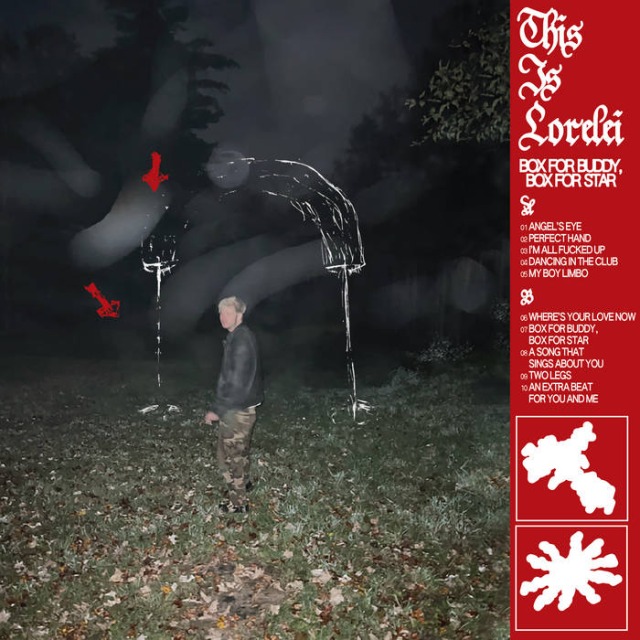 The endless exuberance and unpredictability that define Nate Amos’s style are especially prominent on his latest record, Box For Buddy, Box For Star, where he continues to hone in on his artistic versatility by dialing into a more earnest, singer-songwriter wavelength. In contrast to his earlier work, which is looser and scrappier in construction and concept, the 10-track Box For Buddy is tight and polished yet brims with the same nimble energy as the rest of his formidably abundant discography. Amos is still tinkering with different genres here—namely, mid-Aughts indie rock, folk, country and synth-pop—but he brings a much sharper focus to this material than anything else he’s done. All the pieces of the playground are still there, just a little more renovated. Amos’s straightforward approach results in a record that is both striking in its simplicity and downright seamless in its execution, allowing space for his desire to play around and be vulnerable in a way that he hasn’t before. —Sam Rosenberg [Double Double Whammy]
The endless exuberance and unpredictability that define Nate Amos’s style are especially prominent on his latest record, Box For Buddy, Box For Star, where he continues to hone in on his artistic versatility by dialing into a more earnest, singer-songwriter wavelength. In contrast to his earlier work, which is looser and scrappier in construction and concept, the 10-track Box For Buddy is tight and polished yet brims with the same nimble energy as the rest of his formidably abundant discography. Amos is still tinkering with different genres here—namely, mid-Aughts indie rock, folk, country and synth-pop—but he brings a much sharper focus to this material than anything else he’s done. All the pieces of the playground are still there, just a little more renovated. Amos’s straightforward approach results in a record that is both striking in its simplicity and downright seamless in its execution, allowing space for his desire to play around and be vulnerable in a way that he hasn’t before. —Sam Rosenberg [Double Double Whammy]
Read: “Feeling the Heart of This Is Lorelei in Spades”
22. Chat Pile: Cool World
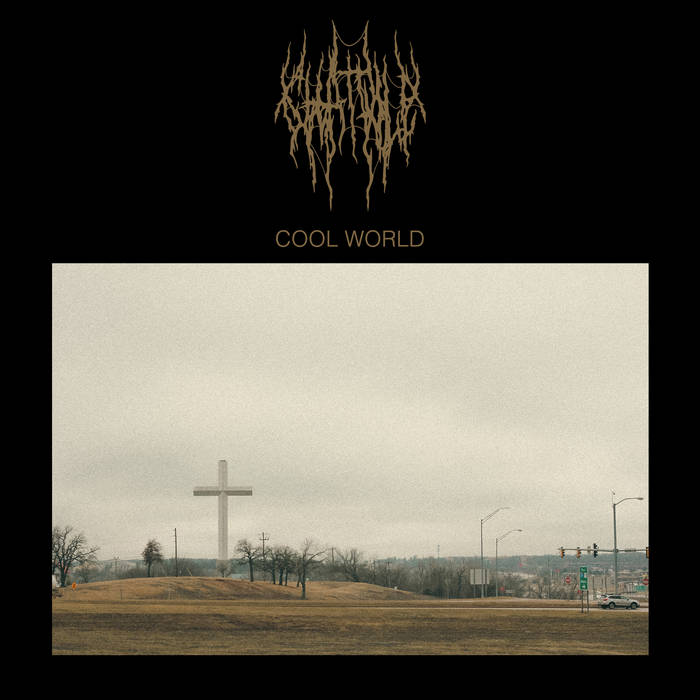 Chat Pile’s noise rock foundation is solid, but the band gleefully veers between sludge metal (“Milk of Human Kindness”) and noisy post-punk (“Shame”). “Frownland” is downright groovy, and without Raygun Busch’s screams on “Tape,” Chat Pile could be convincingly labeled funk-rock. They’re scholars of the aggressive metal and punk traditions of the Clinton and George W. Bush years, channeling that soup of aggression towards a vision of global rot. More than once, warfare catches Chat Pile’s gaze, and they speak plainly to the atrocities made public: “In their parents arms / The kids were falling apart / Broken tiny bodies /Holding tiny still hearts,” Busch utters on “Shame.” There’s the pointless, arguably pathetic sacrifices made to become a tool of war as told on “Funny Man”: “The wicked jester is dancing and clapping / As my big strong hands kill the people they told me / There are times that I can almost believe it / I can almost imagine I was meant to do this and be here.” Less obviously obnoxious violence is the star of sibling tracks “Tape” and “Camcorder,” moments to consider how gruesome atrocities are a part of the everyday under a regime uninterested in preventing them in favor of the bottom line. Chat Pile looks within on “Masc,” with frenetic guitar and swinging bass gnarling beneath Raygun’s comparatively nervous lyrics. He sounds like a man who wants love but lacks sureness of self, inflected with anxiety that reminds me how, to borrow a phrase, this whole thing smacks of gender. Chat Pile lean into a normie masculinity, adopting pseudonyms but performing in regular garb and maintaining low-key personas off-stage. Their presentation is approachable, even if the music is bleak. There’s something about their normality that makes their foreboding messages a hair more chilling: Out of the mouths of men in leather and corpse paint, one can expect lyrics this grim, but out of the mouths of someone who dresses like your neighbor and otherwise acts like a regular person, the human capacity for desolation is on full display. The cranks are not the only ones sensing that the world is permanently twisted. —Devon Chodzin [The Flenser]
Chat Pile’s noise rock foundation is solid, but the band gleefully veers between sludge metal (“Milk of Human Kindness”) and noisy post-punk (“Shame”). “Frownland” is downright groovy, and without Raygun Busch’s screams on “Tape,” Chat Pile could be convincingly labeled funk-rock. They’re scholars of the aggressive metal and punk traditions of the Clinton and George W. Bush years, channeling that soup of aggression towards a vision of global rot. More than once, warfare catches Chat Pile’s gaze, and they speak plainly to the atrocities made public: “In their parents arms / The kids were falling apart / Broken tiny bodies /Holding tiny still hearts,” Busch utters on “Shame.” There’s the pointless, arguably pathetic sacrifices made to become a tool of war as told on “Funny Man”: “The wicked jester is dancing and clapping / As my big strong hands kill the people they told me / There are times that I can almost believe it / I can almost imagine I was meant to do this and be here.” Less obviously obnoxious violence is the star of sibling tracks “Tape” and “Camcorder,” moments to consider how gruesome atrocities are a part of the everyday under a regime uninterested in preventing them in favor of the bottom line. Chat Pile looks within on “Masc,” with frenetic guitar and swinging bass gnarling beneath Raygun’s comparatively nervous lyrics. He sounds like a man who wants love but lacks sureness of self, inflected with anxiety that reminds me how, to borrow a phrase, this whole thing smacks of gender. Chat Pile lean into a normie masculinity, adopting pseudonyms but performing in regular garb and maintaining low-key personas off-stage. Their presentation is approachable, even if the music is bleak. There’s something about their normality that makes their foreboding messages a hair more chilling: Out of the mouths of men in leather and corpse paint, one can expect lyrics this grim, but out of the mouths of someone who dresses like your neighbor and otherwise acts like a regular person, the human capacity for desolation is on full display. The cranks are not the only ones sensing that the world is permanently twisted. —Devon Chodzin [The Flenser]
21. Kim Deal: Nobody Loves You More
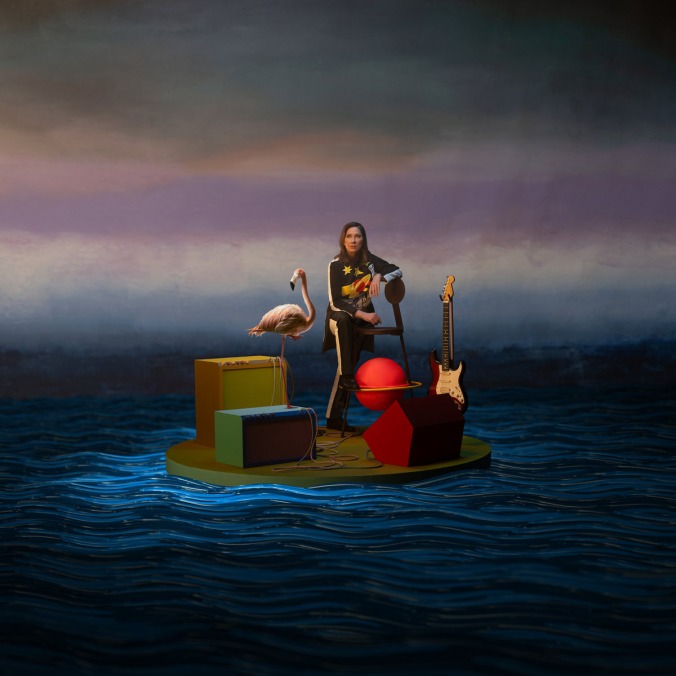 It should surprise no one that Kim Deal’s first-ever solo full-length Nobody Loves You More is both unmistakably her and also a fresh evolution of her sound. All of her integral elements are here: tenderness intertwined with tartness; spacious room tone; thumps and whooshes and bug-zapper guitars; familiar feelings conveyed through strange combinations of words. And then there is her voice—still a fusion of charm, attitude, a choir of angels and fine-grit sandpaper, just as it has been all along. Every song on Nobody Loves You More could be a Breeders song, but some more than others. “Disobedience,” for example, is an astringent stomper that would fit comfortably on the band’s best-known album, 1993’s Last Splash, while the sparkling, skyward “Come Running” feels like a spiritual cousin to the back half of 2018’s All Nerve. And “Wish I Was” is exactly the kind of effervescent pop song Deal has perfected over the years, right down to the slightly off-kilter expressions of feeling: “How I aspire you / The look and the lie of you,” she sings breathily over a propulsive bass line. “I see the sun on your hair.” More often, though, these songs capture Deal in her native mode: exploring new ideas and trying new things. The title track, which begins the record, blossoms into exquisite beauty thanks first to a string section, and then a startlingly vibrant horn section. (Horns also augment the pleasant bob of “Coast,” probably the catchiest song on the album.) On “Crystal Breath,” she leans into prickly post-punk guitar lines and what sounds like mechanized beats. And the album’s most rugged track, “Big Ben Beat,” is a mini-maelstrom of strings, synths and fuzzy noise as Deal aggressively spits out non-sequiturs: “Bursting bodies / Headbang ponytails / Battle childish giants / Talking to the wall.” —Ben Salmon [4AD]
It should surprise no one that Kim Deal’s first-ever solo full-length Nobody Loves You More is both unmistakably her and also a fresh evolution of her sound. All of her integral elements are here: tenderness intertwined with tartness; spacious room tone; thumps and whooshes and bug-zapper guitars; familiar feelings conveyed through strange combinations of words. And then there is her voice—still a fusion of charm, attitude, a choir of angels and fine-grit sandpaper, just as it has been all along. Every song on Nobody Loves You More could be a Breeders song, but some more than others. “Disobedience,” for example, is an astringent stomper that would fit comfortably on the band’s best-known album, 1993’s Last Splash, while the sparkling, skyward “Come Running” feels like a spiritual cousin to the back half of 2018’s All Nerve. And “Wish I Was” is exactly the kind of effervescent pop song Deal has perfected over the years, right down to the slightly off-kilter expressions of feeling: “How I aspire you / The look and the lie of you,” she sings breathily over a propulsive bass line. “I see the sun on your hair.” More often, though, these songs capture Deal in her native mode: exploring new ideas and trying new things. The title track, which begins the record, blossoms into exquisite beauty thanks first to a string section, and then a startlingly vibrant horn section. (Horns also augment the pleasant bob of “Coast,” probably the catchiest song on the album.) On “Crystal Breath,” she leans into prickly post-punk guitar lines and what sounds like mechanized beats. And the album’s most rugged track, “Big Ben Beat,” is a mini-maelstrom of strings, synths and fuzzy noise as Deal aggressively spits out non-sequiturs: “Bursting bodies / Headbang ponytails / Battle childish giants / Talking to the wall.” —Ben Salmon [4AD]
Read: “Kim Deal, You Were Worth the Wait”
20. The Lemon Twigs: A Dream is All We Know
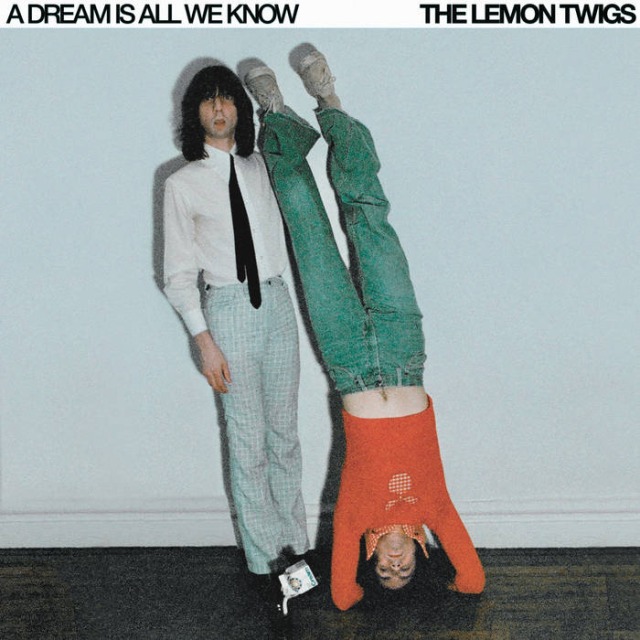 Not even a year ago, Long Island brothers Brian and Michael D’Addario—the Lemon Twigs—unveiled their best record yet, Everything Harmony. Cut to 2024, and they’re already onto their next vision: A Dream Is All We Know. Lead single “My Golden Years” very well might be the greatest song they’ve ever put out, as it is a miraculous display of sun-soaked, power-pop jamming that conjures attitudes of pre-Rubber Soul Beatles magic and impressive, meticulously layered vocals spurred by the Beach Boys, Monkees and the Byrds. There’s about 60 years of influence poking through this track (and it helps that the D’Addarios recorded it on era-specific equipment), but the result is something wholly modern and wholly Lemon Twigs. You can point at different landmarks in the pop music canon, but each direction taken will lead back to Brian and Michael. On a song like “How Can I Love Her More?,” it sounds like the percussion is coming from one stereo drum set in both ears. But, it’s actually two mono drum kits—one being played in each ear. Brian and Michael harmonize like they’re singing up a spiral staircase, as Brian takes the baroque lead and reshapes the horn melody into a Holland-era Beach Boys arrangement. Likewise, he and Michael ham up the whirring, theatrical highs of the title track by resurrecting the discarded pop detritus of proto-synth-pop and meshing it with gliding guitars that zig and zag concurrently with vignettes of vocal harmonies. It’s here that the backbone of their style comes to life: “Love isn’t something you know,” Michael sings out, with Brian sending missile harmonies into the sonic space behind him. “The more you choose it, you’re bound to lose it.” —Matt Mitchell [Captured Tracks]
Not even a year ago, Long Island brothers Brian and Michael D’Addario—the Lemon Twigs—unveiled their best record yet, Everything Harmony. Cut to 2024, and they’re already onto their next vision: A Dream Is All We Know. Lead single “My Golden Years” very well might be the greatest song they’ve ever put out, as it is a miraculous display of sun-soaked, power-pop jamming that conjures attitudes of pre-Rubber Soul Beatles magic and impressive, meticulously layered vocals spurred by the Beach Boys, Monkees and the Byrds. There’s about 60 years of influence poking through this track (and it helps that the D’Addarios recorded it on era-specific equipment), but the result is something wholly modern and wholly Lemon Twigs. You can point at different landmarks in the pop music canon, but each direction taken will lead back to Brian and Michael. On a song like “How Can I Love Her More?,” it sounds like the percussion is coming from one stereo drum set in both ears. But, it’s actually two mono drum kits—one being played in each ear. Brian and Michael harmonize like they’re singing up a spiral staircase, as Brian takes the baroque lead and reshapes the horn melody into a Holland-era Beach Boys arrangement. Likewise, he and Michael ham up the whirring, theatrical highs of the title track by resurrecting the discarded pop detritus of proto-synth-pop and meshing it with gliding guitars that zig and zag concurrently with vignettes of vocal harmonies. It’s here that the backbone of their style comes to life: “Love isn’t something you know,” Michael sings out, with Brian sending missile harmonies into the sonic space behind him. “The more you choose it, you’re bound to lose it.” —Matt Mitchell [Captured Tracks]
19. Ekko Astral: pink balloons
 Considering the legacy of D.C.’s 40-year punk history—as groups like Bad Brains, Minor Threat, Fugazi, The Faith and Scream helped lay the hardcore foundation that’s still plugged into the city’s spirit—Ekko Astral fit right into a mold built for them to thrive in. And still, it feels like a small miracle that they’ve been able to break out like this. Born from Holzman and Hughes’ friendship after meeting each other as students at the University of Vermont, Ekko Astral embody the scene that made them—and, in an era where “scene” music is growing thinner and thinner, the release of pink balloons feels like a righteous and radical victory lap before the race has even started. And few bands have ever really achieved that sort of open-and-shut firepower. Normally it takes some groups a couple of records to get their wheels spinning; Ekko Astral and their “mascara mosh pit” sound are a beacon of joy and breaking points—through the noise of 11 tracks comes a resounding sense of urgent, non-negotiable optimism. What sticks out most about pink balloons is Ekko Astral’s commitment to singing like their generation speaks, which is how you get a barn-burning, circuit-breaking masher like “uwu type beat,” where Holzman, like a glitched-out, Kim Deal-like messenger, bemoans learning to love online and the “empty suit guys” who abuse TouchTunes at the bar. But such era-specific language and cultural references never register like they will become outdated as soon as the next wave of slang is built or the next lineage of celebrities grab hold of their 15 minutes of fame. Instead, like all good punk records we’ve been returning to for 40 years, the music of pink balloons comes across like an archive that captures a moment that will, someday, look different but sound the same. —Matt Mitchell [Topshelf]
Considering the legacy of D.C.’s 40-year punk history—as groups like Bad Brains, Minor Threat, Fugazi, The Faith and Scream helped lay the hardcore foundation that’s still plugged into the city’s spirit—Ekko Astral fit right into a mold built for them to thrive in. And still, it feels like a small miracle that they’ve been able to break out like this. Born from Holzman and Hughes’ friendship after meeting each other as students at the University of Vermont, Ekko Astral embody the scene that made them—and, in an era where “scene” music is growing thinner and thinner, the release of pink balloons feels like a righteous and radical victory lap before the race has even started. And few bands have ever really achieved that sort of open-and-shut firepower. Normally it takes some groups a couple of records to get their wheels spinning; Ekko Astral and their “mascara mosh pit” sound are a beacon of joy and breaking points—through the noise of 11 tracks comes a resounding sense of urgent, non-negotiable optimism. What sticks out most about pink balloons is Ekko Astral’s commitment to singing like their generation speaks, which is how you get a barn-burning, circuit-breaking masher like “uwu type beat,” where Holzman, like a glitched-out, Kim Deal-like messenger, bemoans learning to love online and the “empty suit guys” who abuse TouchTunes at the bar. But such era-specific language and cultural references never register like they will become outdated as soon as the next wave of slang is built or the next lineage of celebrities grab hold of their 15 minutes of fame. Instead, like all good punk records we’ve been returning to for 40 years, the music of pink balloons comes across like an archive that captures a moment that will, someday, look different but sound the same. —Matt Mitchell [Topshelf]
Read: “Ekko Astral: The Best of What’s Next”
18. Foxing: Foxing
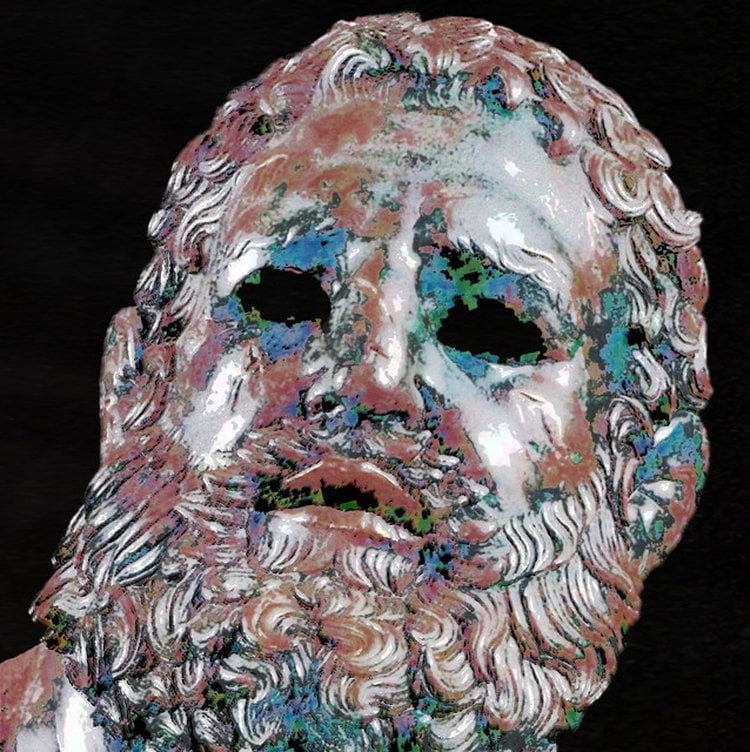 For as accessible as an album like Draw Down the Moon was three years ago, Foxing have never been the type of band to spoil their own party by lingering in the same sound for very long. And on their self-titled LP in 2024, they made another turn, stepping out of the pop-rock of a song like “Go Down Together” and into the disorienting, noisy howls of the guttural “Hell 99.” Elsewhere, “Greyhound” and “Spit” are just as punishing even in their stillest moments. “Secret History” will crush you, while the album’s back-half delves into an incredibly arresting, punky finale with a sequence of songs like “Kentucky McDonald’s,” “Looks Like Nothing,” “Dead Cat” and “Hall of Frozen Heads.” Foxygen holds multitudes, scratching the itches of nu-metal, grimy post-hardcore and blissed-out emo-rock. It’s very experimental, and it’s quite incredible to hear unravel. —Matt Mitchell [Grand Paradise]
For as accessible as an album like Draw Down the Moon was three years ago, Foxing have never been the type of band to spoil their own party by lingering in the same sound for very long. And on their self-titled LP in 2024, they made another turn, stepping out of the pop-rock of a song like “Go Down Together” and into the disorienting, noisy howls of the guttural “Hell 99.” Elsewhere, “Greyhound” and “Spit” are just as punishing even in their stillest moments. “Secret History” will crush you, while the album’s back-half delves into an incredibly arresting, punky finale with a sequence of songs like “Kentucky McDonald’s,” “Looks Like Nothing,” “Dead Cat” and “Hall of Frozen Heads.” Foxygen holds multitudes, scratching the itches of nu-metal, grimy post-hardcore and blissed-out emo-rock. It’s very experimental, and it’s quite incredible to hear unravel. —Matt Mitchell [Grand Paradise]
17. Jack White: Jack White: No Name
 The beauty of No Name is that it’s stuck at an 11 from the first licks of “Old Scratch Blues” to the final quakes of “Terminal Archenemy Endling.” Jack White goes heavy on the hard stuff just as often as he scales back into melancholia. The darkness is physical but not without grace. “What’s the Rumpus?” is a no-fuss, anthemic ballast that tumbles into disarray. “It’s not out of context, our love is not a contest,” White declares. “I’ve got a feeling that the truth’s become opinion these days. That train has left the station, but our love will grow.” In an election year, White’s commitment to hope—told through wall-to-wall images of a dystopian present—feels especially punctuated on No Name. The album rarely simmers and is full of juxtapositions. For every mystical turn the songs take, White drops a guitar lick that’ll shuck the skin clean off your bones. Even when No Name gets into a groove on “Bombing Out,” “Tonight (Was A Long Time Ago)” and “Underground,” the impetus never lets up: White wants to tear every wall down, and he wants you to feel every nail yanked out of the woodwork. It’s powerful stuff, especially when he sounds like a frontman again. Perhaps that was why Fear of the Dawn and Entering Heaven Alive careened into underwhelming territory, because those records sound like they were made by a producer who sometimes also played guitar. The playing here is terrific and as good as, if not better than, anything on De Stijl, Elephant and Icky Thump; the writing is locked in and the production sounds as consistent as anything he’s ever manned. Throughout the 43 minute-runtime of No Name, Jack White sounds like everything you need him to be. —Matt Mitchell [Third Man Records]
The beauty of No Name is that it’s stuck at an 11 from the first licks of “Old Scratch Blues” to the final quakes of “Terminal Archenemy Endling.” Jack White goes heavy on the hard stuff just as often as he scales back into melancholia. The darkness is physical but not without grace. “What’s the Rumpus?” is a no-fuss, anthemic ballast that tumbles into disarray. “It’s not out of context, our love is not a contest,” White declares. “I’ve got a feeling that the truth’s become opinion these days. That train has left the station, but our love will grow.” In an election year, White’s commitment to hope—told through wall-to-wall images of a dystopian present—feels especially punctuated on No Name. The album rarely simmers and is full of juxtapositions. For every mystical turn the songs take, White drops a guitar lick that’ll shuck the skin clean off your bones. Even when No Name gets into a groove on “Bombing Out,” “Tonight (Was A Long Time Ago)” and “Underground,” the impetus never lets up: White wants to tear every wall down, and he wants you to feel every nail yanked out of the woodwork. It’s powerful stuff, especially when he sounds like a frontman again. Perhaps that was why Fear of the Dawn and Entering Heaven Alive careened into underwhelming territory, because those records sound like they were made by a producer who sometimes also played guitar. The playing here is terrific and as good as, if not better than, anything on De Stijl, Elephant and Icky Thump; the writing is locked in and the production sounds as consistent as anything he’s ever manned. Throughout the 43 minute-runtime of No Name, Jack White sounds like everything you need him to be. —Matt Mitchell [Third Man Records]
Read: “Jack White: Artist of the Year”
16. Sharp Pins: Radio DDR
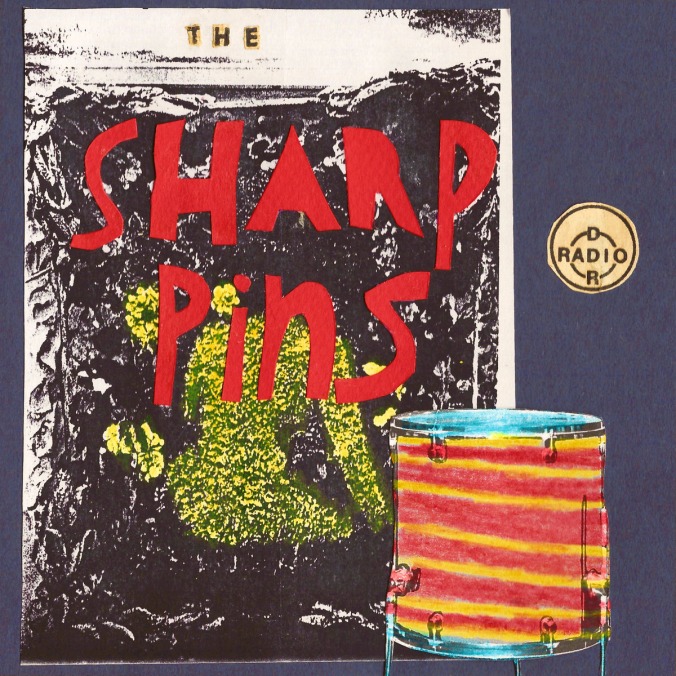 No album better conjured the vibrancy of Guided By Voices’ Alien Lanes in 2024 than Sharp Pins’ Radio DDR. Bandleader Kai Slater—who also leads a noisy Chicago art-punk band called Lifeguard and founded the Hallogallo zine—wasn’t even alive when Alien Lanes came out, but you’d never know that by hearing the metallic jangles of “If I Ever Was Lonely” pour out of a speaker. Radio DDR deserves to be played at full volume. Lifeguard, along with Horsegirl, Friko, Free Range and more, kick-started a teenage wave of very good and very important indie making waves in the Windy City and nationwide, but Slater simmers in a certain kind of rock ‘n’ roll jubilance when performing as Sharp Pins. The sugary lullaby “You Don’t Live Here Anymore” is one of the best songs of the year, while “Sycophant” is maybe Slater’s greatest homage to Elliott Smith yet. “Circle All the Dots” siphons guitar notes from the first Byrds album, while “Lorelei” and “You Have a Way” sound like jangle-pop pulled through a paper shredder. “Every Time I Hear” is a “That Thing You Do!”-worthy joint that would have done numbers at sweethearts dances 50, 60 years ago. Radio DDR is like if the Beatles recorded their early albums in a trash can, and I love every second of its lo-fi sentimentality. It’s hard not to gush over every speck of Sharp Pins’ sophomore release. They deserve the world. —Matt Mitchell [Self-Released]
No album better conjured the vibrancy of Guided By Voices’ Alien Lanes in 2024 than Sharp Pins’ Radio DDR. Bandleader Kai Slater—who also leads a noisy Chicago art-punk band called Lifeguard and founded the Hallogallo zine—wasn’t even alive when Alien Lanes came out, but you’d never know that by hearing the metallic jangles of “If I Ever Was Lonely” pour out of a speaker. Radio DDR deserves to be played at full volume. Lifeguard, along with Horsegirl, Friko, Free Range and more, kick-started a teenage wave of very good and very important indie making waves in the Windy City and nationwide, but Slater simmers in a certain kind of rock ‘n’ roll jubilance when performing as Sharp Pins. The sugary lullaby “You Don’t Live Here Anymore” is one of the best songs of the year, while “Sycophant” is maybe Slater’s greatest homage to Elliott Smith yet. “Circle All the Dots” siphons guitar notes from the first Byrds album, while “Lorelei” and “You Have a Way” sound like jangle-pop pulled through a paper shredder. “Every Time I Hear” is a “That Thing You Do!”-worthy joint that would have done numbers at sweethearts dances 50, 60 years ago. Radio DDR is like if the Beatles recorded their early albums in a trash can, and I love every second of its lo-fi sentimentality. It’s hard not to gush over every speck of Sharp Pins’ sophomore release. They deserve the world. —Matt Mitchell [Self-Released]
15. Liquid MikePaul Bunyan’s Slingshot
 Within the first three tracks of Liquid Mike’s new album, Paul Bunyan’s Slingshot, the band drops the listener in an isolated, indiscriminate town that leaves its inhabitants to their own devices, giving them no choice but to make their own mythologies. Though I cannot condone the opener’s titular activity, metallic rip-roarer “Drinking and Driving” just begs to be blasted from car windows while tearing up the highway (I must emphasize for moral and legal reasons, sober). The following “K2” is the obligatory “get-out-of-this-town” banger, crashing in with bright shiny guitars, evoking hazy nostalgia for summers past and referencing Coldplay in the most perfectly gross way possible (“You pissed your pants and they were all yellow”). The deliciously power poppy chorus of “Town Ease” offers the record’s simplistic semi-thesis statement, “we can’t think of anything to do,” its catalyst for the (usually stupid) attempts at shaking off small town boredom. Getting so high that you get scared has never sounded as fun as it does on “Drug Dealer,” a song that, in the best way, makes you feel like you’re smoking ditch weed out of a Sprite can in a wood-paneled basement. The zig-zaggy, nihilistic “Works Bomb” needs not even a minute-and-a-half to make you want to quit your job and fuck shit up. Among the shimmering backup vocals and sugar-rushed guitar melodies of “Small Giants,” Mike Maples offers perfectly sound advice (“You can shoplift any store you want / It’s not pathetic if you don’t get caught”) and hard-as-hell one-liners (“You made your bed, now dream of nothing”). For a collection of songs about getting up to dumb shenanigans for no reason beyond boredom, Paul Bunyan’s Slingshot occasionally reveals Maple’s hidden, heartfelt depths. —Grace Robins-Somerville [Self-Released]
Within the first three tracks of Liquid Mike’s new album, Paul Bunyan’s Slingshot, the band drops the listener in an isolated, indiscriminate town that leaves its inhabitants to their own devices, giving them no choice but to make their own mythologies. Though I cannot condone the opener’s titular activity, metallic rip-roarer “Drinking and Driving” just begs to be blasted from car windows while tearing up the highway (I must emphasize for moral and legal reasons, sober). The following “K2” is the obligatory “get-out-of-this-town” banger, crashing in with bright shiny guitars, evoking hazy nostalgia for summers past and referencing Coldplay in the most perfectly gross way possible (“You pissed your pants and they were all yellow”). The deliciously power poppy chorus of “Town Ease” offers the record’s simplistic semi-thesis statement, “we can’t think of anything to do,” its catalyst for the (usually stupid) attempts at shaking off small town boredom. Getting so high that you get scared has never sounded as fun as it does on “Drug Dealer,” a song that, in the best way, makes you feel like you’re smoking ditch weed out of a Sprite can in a wood-paneled basement. The zig-zaggy, nihilistic “Works Bomb” needs not even a minute-and-a-half to make you want to quit your job and fuck shit up. Among the shimmering backup vocals and sugar-rushed guitar melodies of “Small Giants,” Mike Maples offers perfectly sound advice (“You can shoplift any store you want / It’s not pathetic if you don’t get caught”) and hard-as-hell one-liners (“You made your bed, now dream of nothing”). For a collection of songs about getting up to dumb shenanigans for no reason beyond boredom, Paul Bunyan’s Slingshot occasionally reveals Maple’s hidden, heartfelt depths. —Grace Robins-Somerville [Self-Released]
14. Sheer Mag: Playing Favorites
 Sheer Mag’s new album, Playing Favorites, begins on a more subdued note than their previous work, if that word can even be held in a conversation about Sheer Mag. Its title-track opener returns to some of their softer sounds, and lets the tenderness that comes from a decade of collaborating together shine. On “Playing Favorites,” guitar work from Kyle Seely and Matt Palmer glimmers as Halladay recounts packing up for another tour while reveling in the magic of getting this far. It’s a song that begs for a long stretch of highway, and like all great road trip tracks, it’s a reminder that the best part is the people on the journey with you. That journey takes Sheer Mag to fascinating new places. Playing Favorites is at its most experimental on “Mechanical Garden,” a six-minute disco groove that opens with a bang before giving way to string arrangements and a guest guitar showcase by Mdou Moctar. As in its title, the disparate musical elements here work surprisingly well together—and Moctar’s dreamy desert blues emerge as a kind of Eden after the track’s hard rock prelude, while the atmospheric lyrics chart a nightlife journey fresh off the Sunset Strip as Halladay considers both sides of losing yourself to the beat. Playing Favorites also makes pit stops at more familiar haunts, like the dive bars and pool tables of “All Lined Up” and the arena rock kiss-offs “Eat It and Beat It” and “Don’t Come Looking.” But like its title track, the songs here have a reflective edge—a new hint of sadness or introspection that puts the heights they climb into sharp relief. Initially recorded during a difficult time for all four band members, the album comes from trying to rig sadness into joy and make both elements sing. As Palmer puts it, it’s the result of trying to “figure out how to have fun when you actually feel miserable.” That tension between fun and miserable is perfect for love songs, and the ones on Playing Favorites revel in it. —Annie Parnell [Third Man]
Sheer Mag’s new album, Playing Favorites, begins on a more subdued note than their previous work, if that word can even be held in a conversation about Sheer Mag. Its title-track opener returns to some of their softer sounds, and lets the tenderness that comes from a decade of collaborating together shine. On “Playing Favorites,” guitar work from Kyle Seely and Matt Palmer glimmers as Halladay recounts packing up for another tour while reveling in the magic of getting this far. It’s a song that begs for a long stretch of highway, and like all great road trip tracks, it’s a reminder that the best part is the people on the journey with you. That journey takes Sheer Mag to fascinating new places. Playing Favorites is at its most experimental on “Mechanical Garden,” a six-minute disco groove that opens with a bang before giving way to string arrangements and a guest guitar showcase by Mdou Moctar. As in its title, the disparate musical elements here work surprisingly well together—and Moctar’s dreamy desert blues emerge as a kind of Eden after the track’s hard rock prelude, while the atmospheric lyrics chart a nightlife journey fresh off the Sunset Strip as Halladay considers both sides of losing yourself to the beat. Playing Favorites also makes pit stops at more familiar haunts, like the dive bars and pool tables of “All Lined Up” and the arena rock kiss-offs “Eat It and Beat It” and “Don’t Come Looking.” But like its title track, the songs here have a reflective edge—a new hint of sadness or introspection that puts the heights they climb into sharp relief. Initially recorded during a difficult time for all four band members, the album comes from trying to rig sadness into joy and make both elements sing. As Palmer puts it, it’s the result of trying to “figure out how to have fun when you actually feel miserable.” That tension between fun and miserable is perfect for love songs, and the ones on Playing Favorites revel in it. —Annie Parnell [Third Man]
13. 2nd Grade: Scheduled Explosions
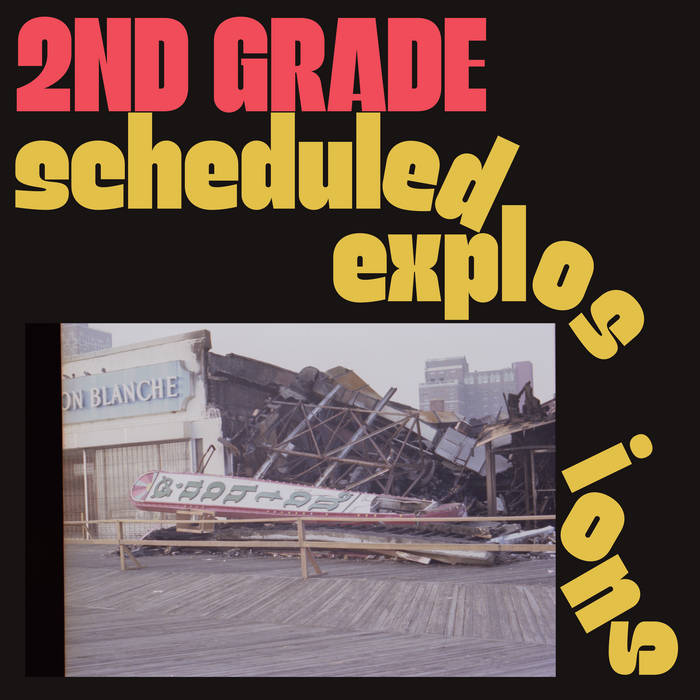 Here is the charm of 2nd Grade: This is not just a terrific little pop band, it’s also a cornucopia of ideas sprung from the mind of Peter Gill, a prolific songwriter with an apparently bottomless supply of catchy melodies in his head and a drive to get as many of them out into the world as possible. In this way, his work recalls that of one of his major influences, Guided By Voices’ Robert Pollard, who has never shied away from releasing tunes that are highly addictive and feel not quite finished. Gill’s songs, to be clear, usually do feel finished, and he is an incredibly efficient pop-smith; “Instant Nostalgia” from Scheduled Explosions, for example, races through two verses, two choruses and a noisy outro in 102 seconds, with barely a moment to breathe along the way. Later on the album, the 67-second “All About You” follows a similar structure and pace, but adds a quick trip across a meta-commentary bridge: “History is written by winners / The losers write power pop / And it’s all about you.” Indeed, 2nd Grade are sometimes a gentle indie pop band and sometimes a buzzy noise pop band, but most often they’re a bite-sized power pop band. There is undeniable power in the electric guitars of “Live from Missile Command” and “Triple Bypass in B-Flat” and “Uncontrollably Cool,” and that’s just the first three tracks on the album—there are at least a dozen more just like them. On “Like Otis Redding,” the band sounds fuzzed out and shambolic, like the aforementioned GBV. On “Made Up My Own Mind,” they sound crisp and jangly like Teenage Fanclub. And sometimes, there are hints of twang and ‘60s soul in the mix, as on “Bureau of Autumn Sorrows” and “Like A Wild Thing,” respectively. Here, 2nd Grade bring to mind the rock ‘n’ roll roots and restless spirit of Alex Chilton. —Ben Salmon [Double Double Whammy]
Here is the charm of 2nd Grade: This is not just a terrific little pop band, it’s also a cornucopia of ideas sprung from the mind of Peter Gill, a prolific songwriter with an apparently bottomless supply of catchy melodies in his head and a drive to get as many of them out into the world as possible. In this way, his work recalls that of one of his major influences, Guided By Voices’ Robert Pollard, who has never shied away from releasing tunes that are highly addictive and feel not quite finished. Gill’s songs, to be clear, usually do feel finished, and he is an incredibly efficient pop-smith; “Instant Nostalgia” from Scheduled Explosions, for example, races through two verses, two choruses and a noisy outro in 102 seconds, with barely a moment to breathe along the way. Later on the album, the 67-second “All About You” follows a similar structure and pace, but adds a quick trip across a meta-commentary bridge: “History is written by winners / The losers write power pop / And it’s all about you.” Indeed, 2nd Grade are sometimes a gentle indie pop band and sometimes a buzzy noise pop band, but most often they’re a bite-sized power pop band. There is undeniable power in the electric guitars of “Live from Missile Command” and “Triple Bypass in B-Flat” and “Uncontrollably Cool,” and that’s just the first three tracks on the album—there are at least a dozen more just like them. On “Like Otis Redding,” the band sounds fuzzed out and shambolic, like the aforementioned GBV. On “Made Up My Own Mind,” they sound crisp and jangly like Teenage Fanclub. And sometimes, there are hints of twang and ‘60s soul in the mix, as on “Bureau of Autumn Sorrows” and “Like A Wild Thing,” respectively. Here, 2nd Grade bring to mind the rock ‘n’ roll roots and restless spirit of Alex Chilton. —Ben Salmon [Double Double Whammy]
12. Wishy: Triple Seven
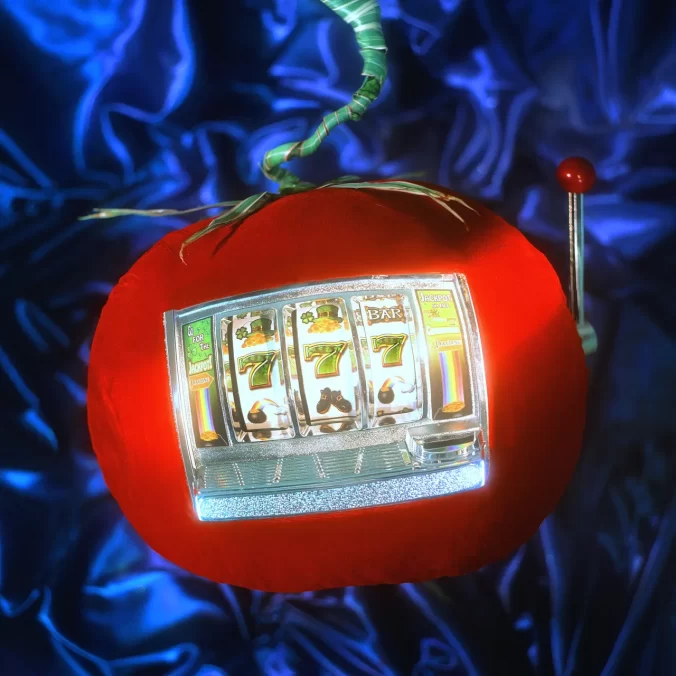 At 10 tracks and 41 minutes long, Triple Seven solidifies Wishy’s sound and proves that the band—formed in 2021 by longtime friends Kevin Krauter and Nina Pitchkites—has the chops to sustain its standard of quality across a full-length release. This is not terribly surprising, but for rock fans burned by promising bands’ patchy releases in the past, it’s nice to hear. Krauter and Pitchkites trade off lead vocals—the former’s come from a more nasally pinched pop-punk tradition, while the latter’s are calm and cool, often carrying melodies that float above it all. (Pitchkites sounds like she was born to sing in a dream pop band.) Throughout the album, they play off each other perfectly, whether they’re providing tonal tension (see the back-to-back zigzag of the strutting “Busted” into the luscious “Just Like Sunday”) or intertwining seamlessly, as they do on “Game,” a propulsive chunk of jangle-pop delivered at a punk pace. Wishy have many strengths, but chief among them is their affinity for instrumental hooks that surface from the swirl and settle in your brain for the foreseeable future. They’re everywhere: A three-note idea that crests over and over again in the background of “Sick Sweet”; the skittering rhythm that underpins the title track; the arena-ready twin-guitar solo in “Persuasion”; the extra-crunchy final third of “Love on the Outside,” in which a jaunty pop tune turns into roaring riff-rock. And then there’s the nursery-rhyme cadence of the album’s caustic closer, “Spit,” in which Krauter and Pitchkites sing, na-na-boo-boo-style: “Who’s gonna break my heart? Who’s gonna wear my mind out? Wish this choice was mine.” OK, that’s a vocal hook, but the point remains the same: Triple Seven spills over with these kinds of sounds, which also happen to be the kinds of sounds that keep people coming back again and again. Turns out Wishy have made not only one of the best debut albums of the year, but also one of the most irresistible, unshakeable albums of the year as well. It takes more than just luck to be this good. —Ben Salmon [Winspear]
At 10 tracks and 41 minutes long, Triple Seven solidifies Wishy’s sound and proves that the band—formed in 2021 by longtime friends Kevin Krauter and Nina Pitchkites—has the chops to sustain its standard of quality across a full-length release. This is not terribly surprising, but for rock fans burned by promising bands’ patchy releases in the past, it’s nice to hear. Krauter and Pitchkites trade off lead vocals—the former’s come from a more nasally pinched pop-punk tradition, while the latter’s are calm and cool, often carrying melodies that float above it all. (Pitchkites sounds like she was born to sing in a dream pop band.) Throughout the album, they play off each other perfectly, whether they’re providing tonal tension (see the back-to-back zigzag of the strutting “Busted” into the luscious “Just Like Sunday”) or intertwining seamlessly, as they do on “Game,” a propulsive chunk of jangle-pop delivered at a punk pace. Wishy have many strengths, but chief among them is their affinity for instrumental hooks that surface from the swirl and settle in your brain for the foreseeable future. They’re everywhere: A three-note idea that crests over and over again in the background of “Sick Sweet”; the skittering rhythm that underpins the title track; the arena-ready twin-guitar solo in “Persuasion”; the extra-crunchy final third of “Love on the Outside,” in which a jaunty pop tune turns into roaring riff-rock. And then there’s the nursery-rhyme cadence of the album’s caustic closer, “Spit,” in which Krauter and Pitchkites sing, na-na-boo-boo-style: “Who’s gonna break my heart? Who’s gonna wear my mind out? Wish this choice was mine.” OK, that’s a vocal hook, but the point remains the same: Triple Seven spills over with these kinds of sounds, which also happen to be the kinds of sounds that keep people coming back again and again. Turns out Wishy have made not only one of the best debut albums of the year, but also one of the most irresistible, unshakeable albums of the year as well. It takes more than just luck to be this good. —Ben Salmon [Winspear]
Read: “Wishy: The Best of What’s Next”
11. Mdou Moctar: Funeral for Justice
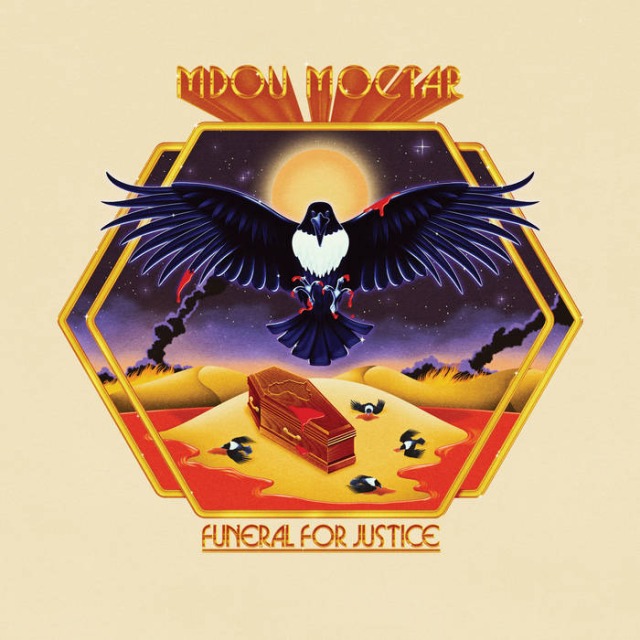 Mdou Moctar uses his guitar to emulate the sound of a siren. During the recording sessions for Funeral for Justice, his band’s latest album, Moctar inched his hand toward the high edge of his lefty fretboard, using his preferred picking hand to instead conjure a burst of wailing noise. Once they wrapped up tracking it, producer and bassist Mikey Coltun was talking to Moctar about why he did that and what he was feeling at that moment. “This is a cry for help,” the guitarist and vocalist told his bandmate. “This is the sound of the siren.” Most of the lyrics for Funeral for Justice are sung in Moctar’s native tongue, Tamasheq, but the messaging of the record rings clear despite any potential language barriers and Mdou Moctar’s growing audience in English-speaking countries. Stacked with countless incandescent guitar solos that erupt like fireworks, there’s an underlying urgency to these songs. The guitar may as well be another one of Moctar’s native languages. It’s a vehicle for his convictions. Funeral for Justice is a roughly 40-minute call to arms with a stalwart anti-colonialist stance. —Grant Sharples [Matador]
Mdou Moctar uses his guitar to emulate the sound of a siren. During the recording sessions for Funeral for Justice, his band’s latest album, Moctar inched his hand toward the high edge of his lefty fretboard, using his preferred picking hand to instead conjure a burst of wailing noise. Once they wrapped up tracking it, producer and bassist Mikey Coltun was talking to Moctar about why he did that and what he was feeling at that moment. “This is a cry for help,” the guitarist and vocalist told his bandmate. “This is the sound of the siren.” Most of the lyrics for Funeral for Justice are sung in Moctar’s native tongue, Tamasheq, but the messaging of the record rings clear despite any potential language barriers and Mdou Moctar’s growing audience in English-speaking countries. Stacked with countless incandescent guitar solos that erupt like fireworks, there’s an underlying urgency to these songs. The guitar may as well be another one of Moctar’s native languages. It’s a vehicle for his convictions. Funeral for Justice is a roughly 40-minute call to arms with a stalwart anti-colonialist stance. —Grant Sharples [Matador]
Read: “Mdou Moctar’s Songs of Protest and Celebration”
10. Ducks Ltd.: Harm’s Way
 Harm’s Way is frenetic and warm, seamless yet meticulous. Tom McGreevy and Evan Lewis wrote the album while on tour opening for bands like Nation of Language and Archers of Loaf, and the bustling, spacious instrumentation mirrors that period of travel and of new stages spent in new cities. Recalling the work Ducks Ltd. did on their 2021 LP Modern Fiction, McGreevy and Lewis are unabashedly content with recycling licks and offering no solutions to the anguish they sing about. They aren’t making nihilistic music, instead engaging with stories that tug on hope yet don’t ignore the dreariness of it all. And it can be easy to overlook that push-and-pull, given that Harm’s Way lingers in its own jitteriness and wants you to feel first, think next. It’s what makes songs like The Smiths’s “This Charming Man” or Orange Juice’s “Rip It Up” timeless, this propulsive, aching urge to play fast, sing about being bruised and, most of all, juxtapose thrashing, explosive tempos with tender, sugary octaves. Harm’s Way is an album about cyclicality written during a cyclical tour spent nursing cross-country exhaustion. Ducks Ltd.’s approach to heaviness sticks out like a sore thumb, as if they intentionally want you to remember that, at its jangly, syrupy core, Harm’s Way is a sad album with no conclusion other than it’s dark outside all the time. They’ve earned this record and these tracks, and their attention to repurposing riffs runs deeper than McGreevy’s vocals or Lewis’s shredding: When you strip away all of the language and percussion and catchiness of Harm’s Way, the sorrow we’re left with sounds the same. —Matt Mitchell [Carpark]
Harm’s Way is frenetic and warm, seamless yet meticulous. Tom McGreevy and Evan Lewis wrote the album while on tour opening for bands like Nation of Language and Archers of Loaf, and the bustling, spacious instrumentation mirrors that period of travel and of new stages spent in new cities. Recalling the work Ducks Ltd. did on their 2021 LP Modern Fiction, McGreevy and Lewis are unabashedly content with recycling licks and offering no solutions to the anguish they sing about. They aren’t making nihilistic music, instead engaging with stories that tug on hope yet don’t ignore the dreariness of it all. And it can be easy to overlook that push-and-pull, given that Harm’s Way lingers in its own jitteriness and wants you to feel first, think next. It’s what makes songs like The Smiths’s “This Charming Man” or Orange Juice’s “Rip It Up” timeless, this propulsive, aching urge to play fast, sing about being bruised and, most of all, juxtapose thrashing, explosive tempos with tender, sugary octaves. Harm’s Way is an album about cyclicality written during a cyclical tour spent nursing cross-country exhaustion. Ducks Ltd.’s approach to heaviness sticks out like a sore thumb, as if they intentionally want you to remember that, at its jangly, syrupy core, Harm’s Way is a sad album with no conclusion other than it’s dark outside all the time. They’ve earned this record and these tracks, and their attention to repurposing riffs runs deeper than McGreevy’s vocals or Lewis’s shredding: When you strip away all of the language and percussion and catchiness of Harm’s Way, the sorrow we’re left with sounds the same. —Matt Mitchell [Carpark]
Read: “Hitting the Lanes With Ducks Ltd.”
9. Nilüfer Yanya: My Method Actor
 On her third studio album, Nilüfer Yanya is learning how to step into her own identity once again. My Method Actor is refreshingly introspective and truthful, and finds Yanya surrendering to the emotions and experience that overpower her by taking a look into her psyche, getting her own advice. It pours out of the London singer-songwriter like a warm honesty in the form of twangy reverb and edgy acoustics, grungy solos and layered melancholy. Yanya lays her worries on the line: “The minute I’m not in control / I’m tearing up inside,” she admits breathlessly on “Like I Say (I runaway).” She reasons with her fears of abandonment, loneliness and being the worst version of herself earnestly and eloquently, as if she’s relinquishing all of this in real time. My Method Actor is powerful in the way that it is established; Yanya’s hushed vocals flourish over lauding string symphonies as they intertwine with instrumentals that sound like early 2000s soft rock tracks. She finds her niche as she searches for herself, looking inward to figure out how her own method actor would behave in times like these. It’s devastatingly real in the same way it’s gorgeously lush: “Shut up won’t you listen, won’t you?” she desperately begs on “Just A Western.” As Yanya says herself, life isn’t a Western and the “beautiful lines that can make you feel something” can turn an acting role tragic at the same time. But, she’s trudging through the mess she’s found herself in, and My Method Actor proves that Yanya knows that destiny is around the corner. —Alli Dempsey [Ninja Tune]
On her third studio album, Nilüfer Yanya is learning how to step into her own identity once again. My Method Actor is refreshingly introspective and truthful, and finds Yanya surrendering to the emotions and experience that overpower her by taking a look into her psyche, getting her own advice. It pours out of the London singer-songwriter like a warm honesty in the form of twangy reverb and edgy acoustics, grungy solos and layered melancholy. Yanya lays her worries on the line: “The minute I’m not in control / I’m tearing up inside,” she admits breathlessly on “Like I Say (I runaway).” She reasons with her fears of abandonment, loneliness and being the worst version of herself earnestly and eloquently, as if she’s relinquishing all of this in real time. My Method Actor is powerful in the way that it is established; Yanya’s hushed vocals flourish over lauding string symphonies as they intertwine with instrumentals that sound like early 2000s soft rock tracks. She finds her niche as she searches for herself, looking inward to figure out how her own method actor would behave in times like these. It’s devastatingly real in the same way it’s gorgeously lush: “Shut up won’t you listen, won’t you?” she desperately begs on “Just A Western.” As Yanya says herself, life isn’t a Western and the “beautiful lines that can make you feel something” can turn an acting role tragic at the same time. But, she’s trudging through the mess she’s found herself in, and My Method Actor proves that Yanya knows that destiny is around the corner. —Alli Dempsey [Ninja Tune]
8. Friko: Where we’ve been, Where we go from here
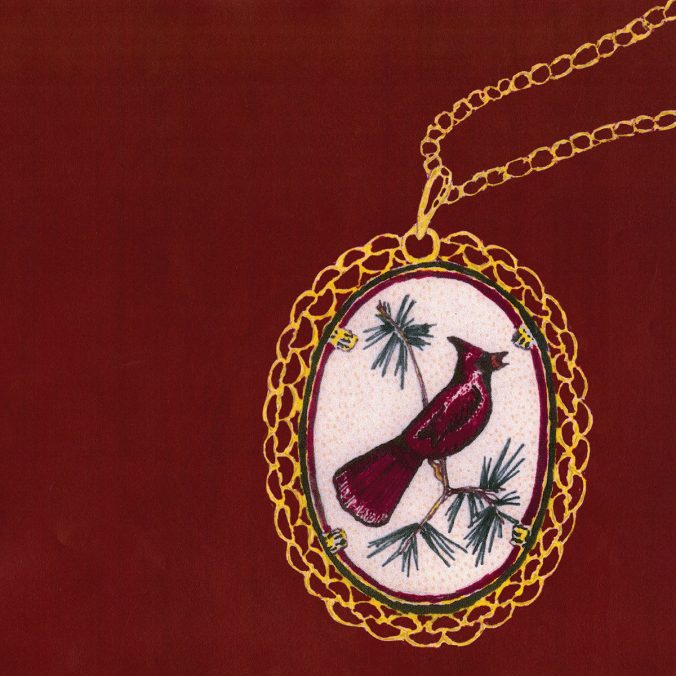 “20 years spent above this place, you could smell the iron from the room,” Niko Kapetan hums at the opening of Where we’ve been, Where we go from here. “And the train was running through the window, carrying a pillow so I could lay my head down onto you.” His vocals galvanize saccharine guitar chords into an oblivion of noise, gang vocals and a wallpaper of distorted gibberish. It’s what I’d imagine Conor Oberst making a pre-OK Computer Radiohead song in 2024 might sound like; this is how Friko has chosen to introduce themselves to us, with phantasmic guitars and a volcanic wall of sound so arresting and mythical you’ll have to run the whole track back just as soon as it fades out. It’s one hell of a hello. Where we’ve been, Where we go from here is inspired by everything from classical concertos to the Garden State soundtrack to Led Zeppelin. Everything they’ve connected with or have listened to, even passively, enforces the way Kapetan and Bailey Minzenberger play alone and together. At the heart of Where we’ve been, Where we go from here, there is a lingering sense of intensity, renewal and out-of-body connections to performance and writing. The whole record is one big thesis statement on, as Kapetan puts it, “wanting better for yourself and the people around you, but wondering how you can possibly do that with the world we live in.” Thus, there is burning. There is despair. But, there is also salvation and closure and resolution. In just a matter of minutes, Where we’ve been, Where we go from here will make you run through a turnstile of emotions. “I’ll write a song, you’ll sing along,” Kapetan sings on “Until I’m With You Again.” “I’ll laugh, you’ll cry, our world inside a song.” It’s risky, poetic, sublime and intimate music that, subsequently, fits perfectly into the framework of Chicago’s lineage of boundary-pushing rock ‘n’ roll while also obliterating any preconceptions of what brutal, complex, feverish and experimental work is supposed to look and sound like. Through Kapetan’s lyricism, Minzenberger’s instrumentation and the collectively massive, beautiful love they hold for one another, Friko are animated, direct and vividly in-sync. And the world has never needed that kind of joyous, purposeful brilliance more than it does right now. —Matt Mitchell [ATO Records]
“20 years spent above this place, you could smell the iron from the room,” Niko Kapetan hums at the opening of Where we’ve been, Where we go from here. “And the train was running through the window, carrying a pillow so I could lay my head down onto you.” His vocals galvanize saccharine guitar chords into an oblivion of noise, gang vocals and a wallpaper of distorted gibberish. It’s what I’d imagine Conor Oberst making a pre-OK Computer Radiohead song in 2024 might sound like; this is how Friko has chosen to introduce themselves to us, with phantasmic guitars and a volcanic wall of sound so arresting and mythical you’ll have to run the whole track back just as soon as it fades out. It’s one hell of a hello. Where we’ve been, Where we go from here is inspired by everything from classical concertos to the Garden State soundtrack to Led Zeppelin. Everything they’ve connected with or have listened to, even passively, enforces the way Kapetan and Bailey Minzenberger play alone and together. At the heart of Where we’ve been, Where we go from here, there is a lingering sense of intensity, renewal and out-of-body connections to performance and writing. The whole record is one big thesis statement on, as Kapetan puts it, “wanting better for yourself and the people around you, but wondering how you can possibly do that with the world we live in.” Thus, there is burning. There is despair. But, there is also salvation and closure and resolution. In just a matter of minutes, Where we’ve been, Where we go from here will make you run through a turnstile of emotions. “I’ll write a song, you’ll sing along,” Kapetan sings on “Until I’m With You Again.” “I’ll laugh, you’ll cry, our world inside a song.” It’s risky, poetic, sublime and intimate music that, subsequently, fits perfectly into the framework of Chicago’s lineage of boundary-pushing rock ‘n’ roll while also obliterating any preconceptions of what brutal, complex, feverish and experimental work is supposed to look and sound like. Through Kapetan’s lyricism, Minzenberger’s instrumentation and the collectively massive, beautiful love they hold for one another, Friko are animated, direct and vividly in-sync. And the world has never needed that kind of joyous, purposeful brilliance more than it does right now. —Matt Mitchell [ATO Records]
Read: “Friko’s World Inside a Song”
7. The Cure: Songs of a Lost World
 To directly compare the new record, Songs of a Lost World, to another Cure album—just as a barometer of quality compared to more familiar corners of the back catalog—is to misunderstand its purpose in the band’s canon. If Robert Smith, on the brink of turning 30, made his masterpiece lined with hope’s starlit glimmer on Disintegration and howled to emerge from the drug-fueled, claustrophobic paranoia of Pornography in his early twenties, Songs of a Lost World is tired of flailing, having no time for ripping at the seams of his life’s work to look for further meaning. The shaky hand that scribbled the line “It doesn’t matter if we all die” belongs to an artist who now knows there’s never been a statement further from the truth, re-reading Ernest Dowson’s poem “Dregs” until his eyes go weak and begging loved ones to fight for his place in their life while they still can. Confronted with the deaths of multiple family members and a world crashing around him, Robert Smith can’t simply “return to form.” He’s metamorphosed into a new form that suits both our larger societal moment and his own meditations on existence. He and the band have made a better album as a result. There are two elements which make up the quintessential Cure recording, both of which are present here. The first is expressive, sweeping instrumentals—which Perry Bamonte, Jason Cooper and Reeves Gabrels, Simon Gallup and Roger O’Donnell craft and deliver with aplomb on opener “Alone.”
To directly compare the new record, Songs of a Lost World, to another Cure album—just as a barometer of quality compared to more familiar corners of the back catalog—is to misunderstand its purpose in the band’s canon. If Robert Smith, on the brink of turning 30, made his masterpiece lined with hope’s starlit glimmer on Disintegration and howled to emerge from the drug-fueled, claustrophobic paranoia of Pornography in his early twenties, Songs of a Lost World is tired of flailing, having no time for ripping at the seams of his life’s work to look for further meaning. The shaky hand that scribbled the line “It doesn’t matter if we all die” belongs to an artist who now knows there’s never been a statement further from the truth, re-reading Ernest Dowson’s poem “Dregs” until his eyes go weak and begging loved ones to fight for his place in their life while they still can. Confronted with the deaths of multiple family members and a world crashing around him, Robert Smith can’t simply “return to form.” He’s metamorphosed into a new form that suits both our larger societal moment and his own meditations on existence. He and the band have made a better album as a result. There are two elements which make up the quintessential Cure recording, both of which are present here. The first is expressive, sweeping instrumentals—which Perry Bamonte, Jason Cooper and Reeves Gabrels, Simon Gallup and Roger O’Donnell craft and deliver with aplomb on opener “Alone.”
There are moments of restraint to underpin orchestral passages, but these opulent soundscapes continue to be so central to the band’s sound, say, post-1985 because they do so much of the heavy lifting atmospherically. There’s a reason so many Cure songs withstand the weight of these sprawling introductions they’re so fond of, why our diminished attention spans still don’t seem to feel the time pass when we’re locked into the emotive swirl of sound. If you believe Smith’s claim that the band will cease to exist after its 50th anniversary, giving the Cure about four years’ time to release however much more material they supposedly have ready to go, Songs of a Lost World will be an album we’ll have to re-contextualize a few times over. Then again, Robert Smith has famously threatened to blow the band up whenever he wraps up a Cure project, so we may all be prepping for the next few years of goodbyes in vain. Yet, there will never be a time when a song centering his voice won’t be welcome—all worth it for an avalanche of guitars clearing the aisles for that voice to sing, “Promise you’ll be with me in the end.” The words may not be comforting, but with our hands on Songs of a Lost World after so much time away, you’ve never been more glad it’s him saying them. —Elise Soutar [Polydor]
6. Fashion Club: A Love You Cannot Shake
 As petrifying as dramatic changes can be—Fashion Club’s Pascal Stevenson embraced sobriety and a gender transition as she got her band off the ground—when’s a better time to embrace the artistic practice you’ve been itching to try than right now? For years, the Los Angeles-based producer and bassist honed her skills making post-punk as part of Moaning and pushed that sound into dark ambient territory on her first album as Fashion Club. For A Love You Cannot Shake, Stevenson dropped all pretense and embraced the electronics she’d studied for years. Her new sound is a modern art-rock that feels like M83 filtered through a Oneohtrix Point Never lens, or maybe Katie Dey with the curtains drawn a touch further apart. Where many projects feel like they’ve “arrived” when they release an album that carefully adjusts the sounds their early LPs introduced, Fashion Club’s arrival is a much more profound sonic pivot. This glamorous, electronically heightened Fashion Club era feels like the sound which Stevenson has always gestured toward but never allowed herself to embrace. Now that she has, Fashion Club feels matured. This is the first Stevenson project where she’s verbalized her transgender experience; it’s in these songs about time’s passing and questions about what really changes that her gender makes an appearance. Otherwise quotidian inflection points that are a part of daily living, which get their fair share of banal exploration throughout garden-variety indie albums, have more spark when reflected against Stevenson’s personal and artistic changes. —Devon Chodzin [Felte]
As petrifying as dramatic changes can be—Fashion Club’s Pascal Stevenson embraced sobriety and a gender transition as she got her band off the ground—when’s a better time to embrace the artistic practice you’ve been itching to try than right now? For years, the Los Angeles-based producer and bassist honed her skills making post-punk as part of Moaning and pushed that sound into dark ambient territory on her first album as Fashion Club. For A Love You Cannot Shake, Stevenson dropped all pretense and embraced the electronics she’d studied for years. Her new sound is a modern art-rock that feels like M83 filtered through a Oneohtrix Point Never lens, or maybe Katie Dey with the curtains drawn a touch further apart. Where many projects feel like they’ve “arrived” when they release an album that carefully adjusts the sounds their early LPs introduced, Fashion Club’s arrival is a much more profound sonic pivot. This glamorous, electronically heightened Fashion Club era feels like the sound which Stevenson has always gestured toward but never allowed herself to embrace. Now that she has, Fashion Club feels matured. This is the first Stevenson project where she’s verbalized her transgender experience; it’s in these songs about time’s passing and questions about what really changes that her gender makes an appearance. Otherwise quotidian inflection points that are a part of daily living, which get their fair share of banal exploration throughout garden-variety indie albums, have more spark when reflected against Stevenson’s personal and artistic changes. —Devon Chodzin [Felte]
5. Eliza McLamb: Going Through It
 Going Through It isn’t just quiet introspection all the way down—the sprinkling of snarky, fast-paced rockers are where Eliza McLamb’s humor, hooks and self-aware star-power shine the brightest, proving that she and producer Sarah Tudzin are a perfect match. A pop-country romp with lyrics straight from a 12-step meeting for recovering Manic Pixie Dream Girls, “Mythologize Me” sounds like a song Taylor Swift might’ve written if she’d read Friedan and Butler in between recording Fearless and Speak Now. McLamb takes John Berger’s widely-cited and often decontextualized statement “men watch women, women watch themselves being looked at,” and paraphrases it in a droll deadpan that would make Liz Phair proud: “All I can do is fantasize about how you fantasize about me.” On “Modern Woman,” McLamb zooms out even further to interrogate contemporary womanhood’s identity crisis. She cycles through micro-identities—she’s a high-powered girlboss paying her bills, she’s a hot mess rotting away in her room, she’s a Sad Girl crying tears that are prettier and more meaningful than yours, she’s the kind of girl can pull off rhyming “Instagram” with “deli ham.” Eliza McLamb is not here to tell us exactly what kind of girl she is—she’s still figuring that one out. In the meantime, she’ll do her best to hand the mic to all the people that she’s met. —Grace Robins-Somerville [Royal Mountain]
Going Through It isn’t just quiet introspection all the way down—the sprinkling of snarky, fast-paced rockers are where Eliza McLamb’s humor, hooks and self-aware star-power shine the brightest, proving that she and producer Sarah Tudzin are a perfect match. A pop-country romp with lyrics straight from a 12-step meeting for recovering Manic Pixie Dream Girls, “Mythologize Me” sounds like a song Taylor Swift might’ve written if she’d read Friedan and Butler in between recording Fearless and Speak Now. McLamb takes John Berger’s widely-cited and often decontextualized statement “men watch women, women watch themselves being looked at,” and paraphrases it in a droll deadpan that would make Liz Phair proud: “All I can do is fantasize about how you fantasize about me.” On “Modern Woman,” McLamb zooms out even further to interrogate contemporary womanhood’s identity crisis. She cycles through micro-identities—she’s a high-powered girlboss paying her bills, she’s a hot mess rotting away in her room, she’s a Sad Girl crying tears that are prettier and more meaningful than yours, she’s the kind of girl can pull off rhyming “Instagram” with “deli ham.” Eliza McLamb is not here to tell us exactly what kind of girl she is—she’s still figuring that one out. In the meantime, she’ll do her best to hand the mic to all the people that she’s met. —Grace Robins-Somerville [Royal Mountain]
4. MJ Lenderman: Manning Fireworks
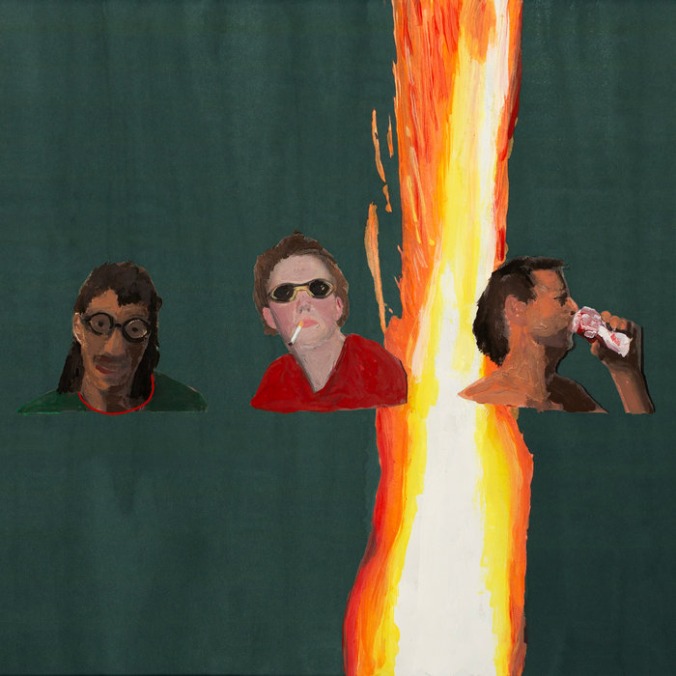 MJ Lenderman could’ve taken the mantle of indie rock stardom in a much more obvious way. Instead, he quietly shakes off these expectations with his fourth album, Manning Fireworks. Where Boat Songs jumped into a guitar riff in its first five seconds, Manning Fireworks starts off bare and acoustic. This is a record about consequences, about the things that happen once you shake off your beer-buzz and face reality. Its characters are not the sports lovers or boat owners from Boat Songs. They’re drowning in debt after they impulsively bought a boat. Caricatures define the record, as people comfort themselves with useless objects like “a wristwatch that’s a pocket knife and a megaphone” or “betting on horses named ‘Johnny Come Lately.’” Lenderman’s scenes toe the line between humor and shame and reckon with the shame and bad luck of passing out into a bowl of Lucky Charms; Cars’ Lightning McQueen gets “blacked out at full speed”; drink some water, it’ll “kill the need to puke,” as Lenderman advises on “Riptorn.” Still, Manning Fireworks is never pessimistic. As self-destructive as Lenderman’s characters can be, they’re always funny in an insistent, hopeful way. It doesn’t matter if “you say I’ve wasted my life away,” as the narrator on “Wristwatch” admonishes. He’s still got that cool wristwatch. Lenderman summarizes this ethos best in “On My Knees”: “Every day is a miracle / Not to mention a threat.” As a lyricist, he writes songs where both feel true in equal measure. The music is both pitiful and reflective of our worst selves. You can’t help but root for them. —Andy Steiner [ANTI-]
MJ Lenderman could’ve taken the mantle of indie rock stardom in a much more obvious way. Instead, he quietly shakes off these expectations with his fourth album, Manning Fireworks. Where Boat Songs jumped into a guitar riff in its first five seconds, Manning Fireworks starts off bare and acoustic. This is a record about consequences, about the things that happen once you shake off your beer-buzz and face reality. Its characters are not the sports lovers or boat owners from Boat Songs. They’re drowning in debt after they impulsively bought a boat. Caricatures define the record, as people comfort themselves with useless objects like “a wristwatch that’s a pocket knife and a megaphone” or “betting on horses named ‘Johnny Come Lately.’” Lenderman’s scenes toe the line between humor and shame and reckon with the shame and bad luck of passing out into a bowl of Lucky Charms; Cars’ Lightning McQueen gets “blacked out at full speed”; drink some water, it’ll “kill the need to puke,” as Lenderman advises on “Riptorn.” Still, Manning Fireworks is never pessimistic. As self-destructive as Lenderman’s characters can be, they’re always funny in an insistent, hopeful way. It doesn’t matter if “you say I’ve wasted my life away,” as the narrator on “Wristwatch” admonishes. He’s still got that cool wristwatch. Lenderman summarizes this ethos best in “On My Knees”: “Every day is a miracle / Not to mention a threat.” As a lyricist, he writes songs where both feel true in equal measure. The music is both pitiful and reflective of our worst selves. You can’t help but root for them. —Andy Steiner [ANTI-]
Read: “MJ Lenderman: Miracles in the Mundane”
3. Mannequin Pussy: I Got Heaven
 Throughout I Got Heaven, Mannequin Pussy’s punk becomes more pliable, intermingling with sprightly synths (“I Don’t Know You”), breezy vocal hooks (“Nothing Like”) and a stripped-down bridge that builds into distant roars (“Softly”). That textural variety shines as one of I Got Heaven’s greatest assets, yet its most discordant songs remain the strongest of the lot. “I Got Heaven” rolls into the equally barbed tune “Loud Bark,” a segue so natural that the tracks feel like two acts of the same narrative. “I got a loud bark / Deep bite,” Dabice spits on the refrain, exhaling each word with a breathy heave. The divine one-two punch is the highlight of the record, a perfect pairing of songs that supplies an unwavering sense of protection and solidarity. The lyrics “For what they did to you / I will never lay to rest” from the title track remain the most poignant lines on the record—a mighty feat, considering “Of Her” professes the grisly chant “Yes I suffer for the money / Serve me on a platter and then cut me.” The back half of the record proves to be a bulldozer of sound, fueled by a high-octane clash between rage and yearning. Here lie the record’s most unrelenting moments, which pummel listeners through lyrical repetition: Dabice’s mounting howls of “I got to / I got to / I GOT to / I GOT TO BE FREE” on “Aching,” and the rapid-fire refrain of “OK? OK! OK? OK!,” a grinding duet that lends the mic to bassist Colins “Bear” Regisford. Mannequin Pussy’s map of utopia may span uneven terrain, but the band dominates every inch of it, forging cohesive paths between harsh and heavenly melodies. The feat renews one of punk’s lasting tenets for a new era of activism: to protect what’s precious—freedom, community or otherwise—you usually have to raise a little hell. —Victoria Wasylak [Epitaph]
Throughout I Got Heaven, Mannequin Pussy’s punk becomes more pliable, intermingling with sprightly synths (“I Don’t Know You”), breezy vocal hooks (“Nothing Like”) and a stripped-down bridge that builds into distant roars (“Softly”). That textural variety shines as one of I Got Heaven’s greatest assets, yet its most discordant songs remain the strongest of the lot. “I Got Heaven” rolls into the equally barbed tune “Loud Bark,” a segue so natural that the tracks feel like two acts of the same narrative. “I got a loud bark / Deep bite,” Dabice spits on the refrain, exhaling each word with a breathy heave. The divine one-two punch is the highlight of the record, a perfect pairing of songs that supplies an unwavering sense of protection and solidarity. The lyrics “For what they did to you / I will never lay to rest” from the title track remain the most poignant lines on the record—a mighty feat, considering “Of Her” professes the grisly chant “Yes I suffer for the money / Serve me on a platter and then cut me.” The back half of the record proves to be a bulldozer of sound, fueled by a high-octane clash between rage and yearning. Here lie the record’s most unrelenting moments, which pummel listeners through lyrical repetition: Dabice’s mounting howls of “I got to / I got to / I GOT to / I GOT TO BE FREE” on “Aching,” and the rapid-fire refrain of “OK? OK! OK? OK!,” a grinding duet that lends the mic to bassist Colins “Bear” Regisford. Mannequin Pussy’s map of utopia may span uneven terrain, but the band dominates every inch of it, forging cohesive paths between harsh and heavenly melodies. The feat renews one of punk’s lasting tenets for a new era of activism: to protect what’s precious—freedom, community or otherwise—you usually have to raise a little hell. —Victoria Wasylak [Epitaph]
Read: “Mannequin Pussy’s Divine Intervention”
2. Fontaines D.C.: Romance
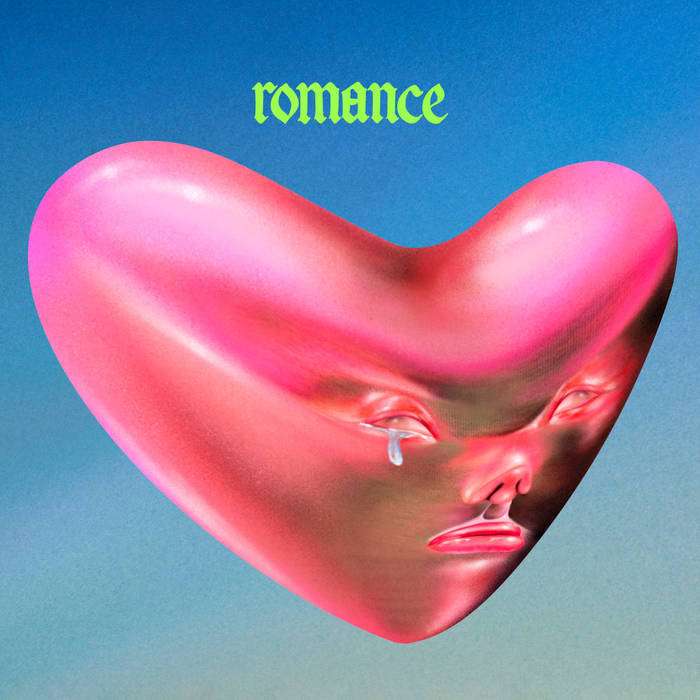 Fontaines D.C. aren’t concerned with making their image fit into someone else’s vision. They employ a Rolodex of citations on Romance—like the Cure, Deftones, Pixies, amorphous grunge collages and a smorgasbord of ‘90s alt-pop bands that faded into obscurity just as soon as they detonated—but never sound like anything other than themselves. You can hear that truth from the first note of Romance, as the title track begins with an arresting, menacing slow-burn of plucky, crucified singing from Chatten, who bellows “I will be beside you ‘til you’re dead” with a lick of delicacy that becomes enraptured in a tempest blow-out of shivering, droning distortion. It’s an announcement and a battlecry: “Maybe romance is the place for me and you, and you, and you,” Chatten confides, as his bandmates swirl into each other and puncture the tempo with a cinematic climax that is as bombastically poisonous as it is, under its bruising skin, reflective and hopeful. On Romance, defying expectations becomes fashionable for Fontaines D.C. Love the band or hate them, these 11 tracks never simmer in the aesthetic tropes they wore well on A Hero’s Death or Skinty Fia. The guitars are far more lush, and even the most onerous, deafening comedowns of distortion sound poppier and histrionic than what we’re used to hearing from Chatten, O’Connell, Curley, Coll and Deegan. The stories are tragic and the days within them are numbered, but Romance is an essay of mosh-pit guitars careening into baggy desires and stringed visions of mercy. This album’s violence stretches itself around the cinema of living. One of the last lines Chatten sings on it is “each new day, I get another year older.” Like yesterday and tomorrow, Romance is a bloody mess. I adore every second of it. —Matt Mitchell [XL]
Fontaines D.C. aren’t concerned with making their image fit into someone else’s vision. They employ a Rolodex of citations on Romance—like the Cure, Deftones, Pixies, amorphous grunge collages and a smorgasbord of ‘90s alt-pop bands that faded into obscurity just as soon as they detonated—but never sound like anything other than themselves. You can hear that truth from the first note of Romance, as the title track begins with an arresting, menacing slow-burn of plucky, crucified singing from Chatten, who bellows “I will be beside you ‘til you’re dead” with a lick of delicacy that becomes enraptured in a tempest blow-out of shivering, droning distortion. It’s an announcement and a battlecry: “Maybe romance is the place for me and you, and you, and you,” Chatten confides, as his bandmates swirl into each other and puncture the tempo with a cinematic climax that is as bombastically poisonous as it is, under its bruising skin, reflective and hopeful. On Romance, defying expectations becomes fashionable for Fontaines D.C. Love the band or hate them, these 11 tracks never simmer in the aesthetic tropes they wore well on A Hero’s Death or Skinty Fia. The guitars are far more lush, and even the most onerous, deafening comedowns of distortion sound poppier and histrionic than what we’re used to hearing from Chatten, O’Connell, Curley, Coll and Deegan. The stories are tragic and the days within them are numbered, but Romance is an essay of mosh-pit guitars careening into baggy desires and stringed visions of mercy. This album’s violence stretches itself around the cinema of living. One of the last lines Chatten sings on it is “each new day, I get another year older.” Like yesterday and tomorrow, Romance is a bloody mess. I adore every second of it. —Matt Mitchell [XL]
Read: “Fontaines D.C. Learn, Rise and Return”
1. Wild Pink: Dulling the Horns
 There’s a moment on “Cloud or Mountain,” a cut from Dulling the Horns, Wild Pink’s masterpiece fifth album, where the guitars fake you out. After a few seconds of jangling and the band’s typical warmth, they come hailing down like a roof collapsing over your head. The shredding is euphoric, even as John Ross sings of illness, federal investigations and cult leaders getting their way. Dialed up to an 11 and leagues more efficient, Dulling the Horns is a record that blazes past you even in its more meditative moments. Written in the wake of a whirlwind few years for John Ross, his exhaustion is palpable. Amid guitars that flit from sludgy to jagged to wandering, sometimes in the same song, Ross sings as though he’s coming apart at the seams. Despite its guiding principle of “burn it all down, keep moving,” Dulling the Horns acts as a capstone, a glorious culmination of all Ross and company have accomplished thus far. The sunlit grandeur of A Billion Little Lights brightens the background of songs like “Catholic Dracula” and “Eating The Egg Whole. “Disintegrate” and “St. Catherine St.” pull their rich ambiance from ILYSM and Yolk in the Fur. “Sprinter Brain” feels like an echo of “Nothing to Show” from the band’s self-titled album. No matter the music’s shape, John Ross and his inimitable pen remain at the core of it all. Whether writing from the perspective of runaway dogs or exploring the typical Catholic upbringing through a famed vampire, Ross anchors real feelings in even the most enthralling absurdities. —Eric Bennett [Fire Talk]
There’s a moment on “Cloud or Mountain,” a cut from Dulling the Horns, Wild Pink’s masterpiece fifth album, where the guitars fake you out. After a few seconds of jangling and the band’s typical warmth, they come hailing down like a roof collapsing over your head. The shredding is euphoric, even as John Ross sings of illness, federal investigations and cult leaders getting their way. Dialed up to an 11 and leagues more efficient, Dulling the Horns is a record that blazes past you even in its more meditative moments. Written in the wake of a whirlwind few years for John Ross, his exhaustion is palpable. Amid guitars that flit from sludgy to jagged to wandering, sometimes in the same song, Ross sings as though he’s coming apart at the seams. Despite its guiding principle of “burn it all down, keep moving,” Dulling the Horns acts as a capstone, a glorious culmination of all Ross and company have accomplished thus far. The sunlit grandeur of A Billion Little Lights brightens the background of songs like “Catholic Dracula” and “Eating The Egg Whole. “Disintegrate” and “St. Catherine St.” pull their rich ambiance from ILYSM and Yolk in the Fur. “Sprinter Brain” feels like an echo of “Nothing to Show” from the band’s self-titled album. No matter the music’s shape, John Ross and his inimitable pen remain at the core of it all. Whether writing from the perspective of runaway dogs or exploring the typical Catholic upbringing through a famed vampire, Ross anchors real feelings in even the most enthralling absurdities. —Eric Bennett [Fire Talk]







































